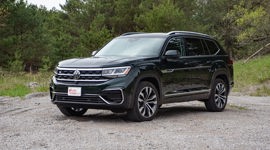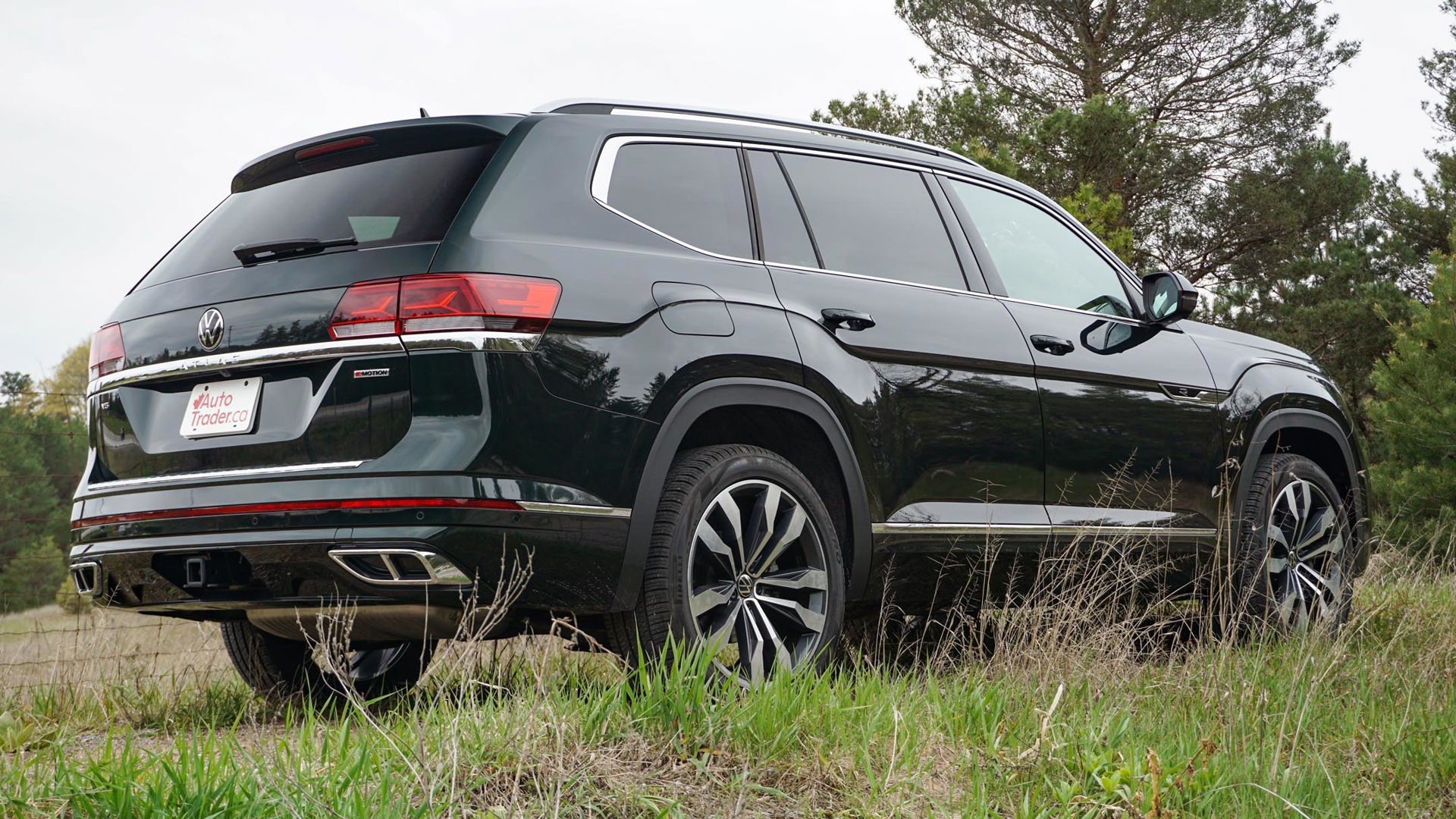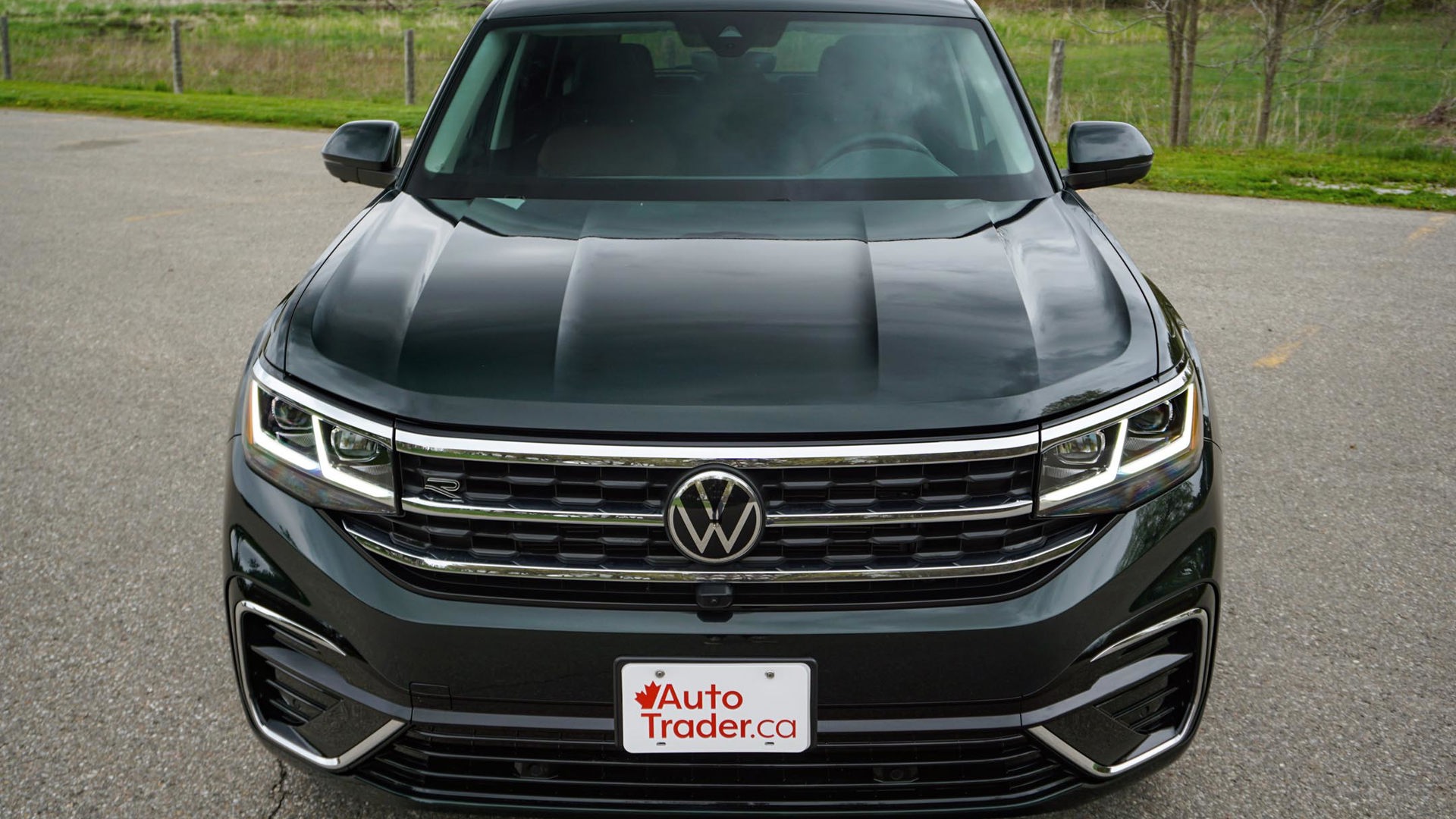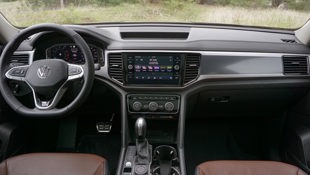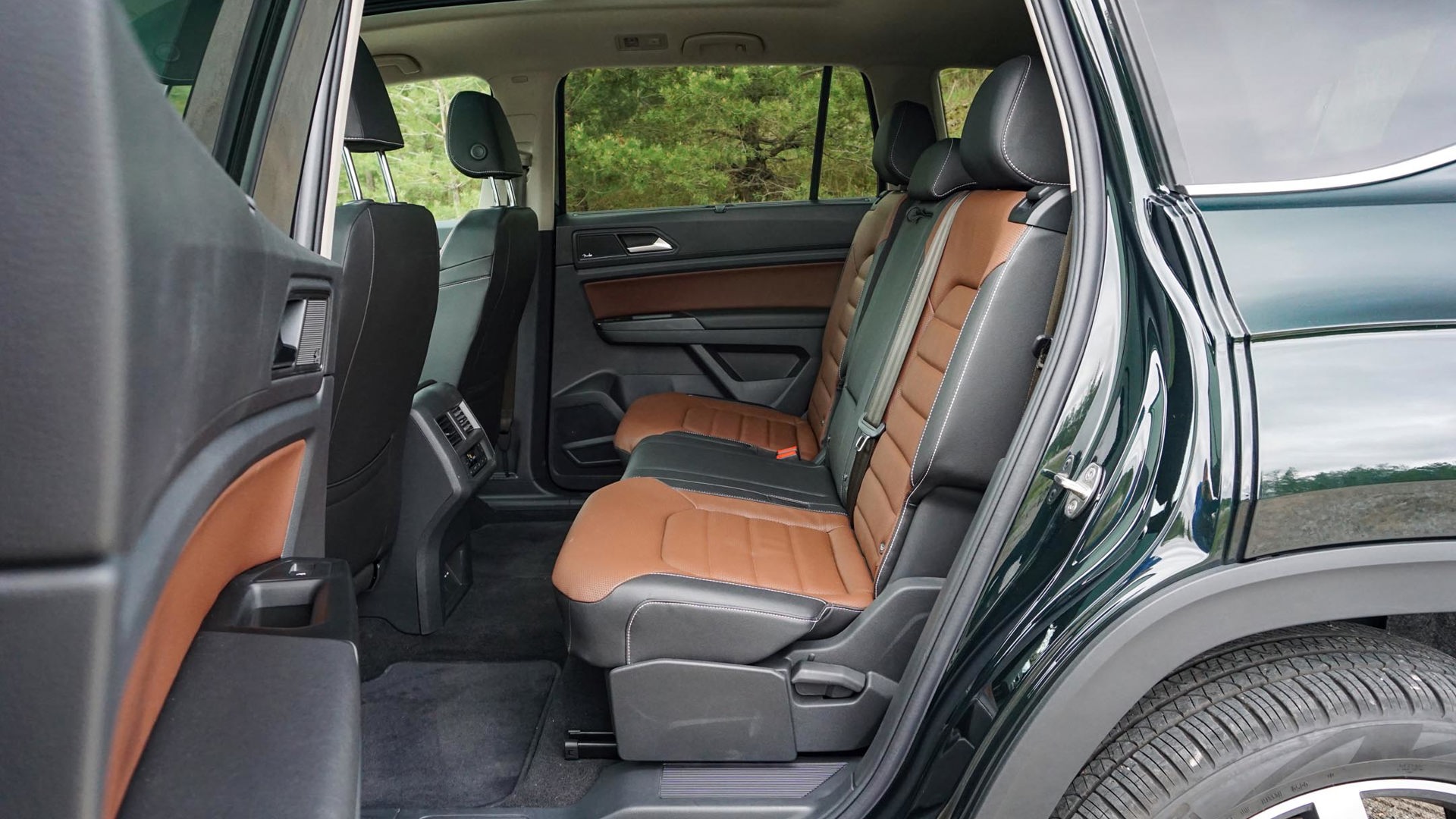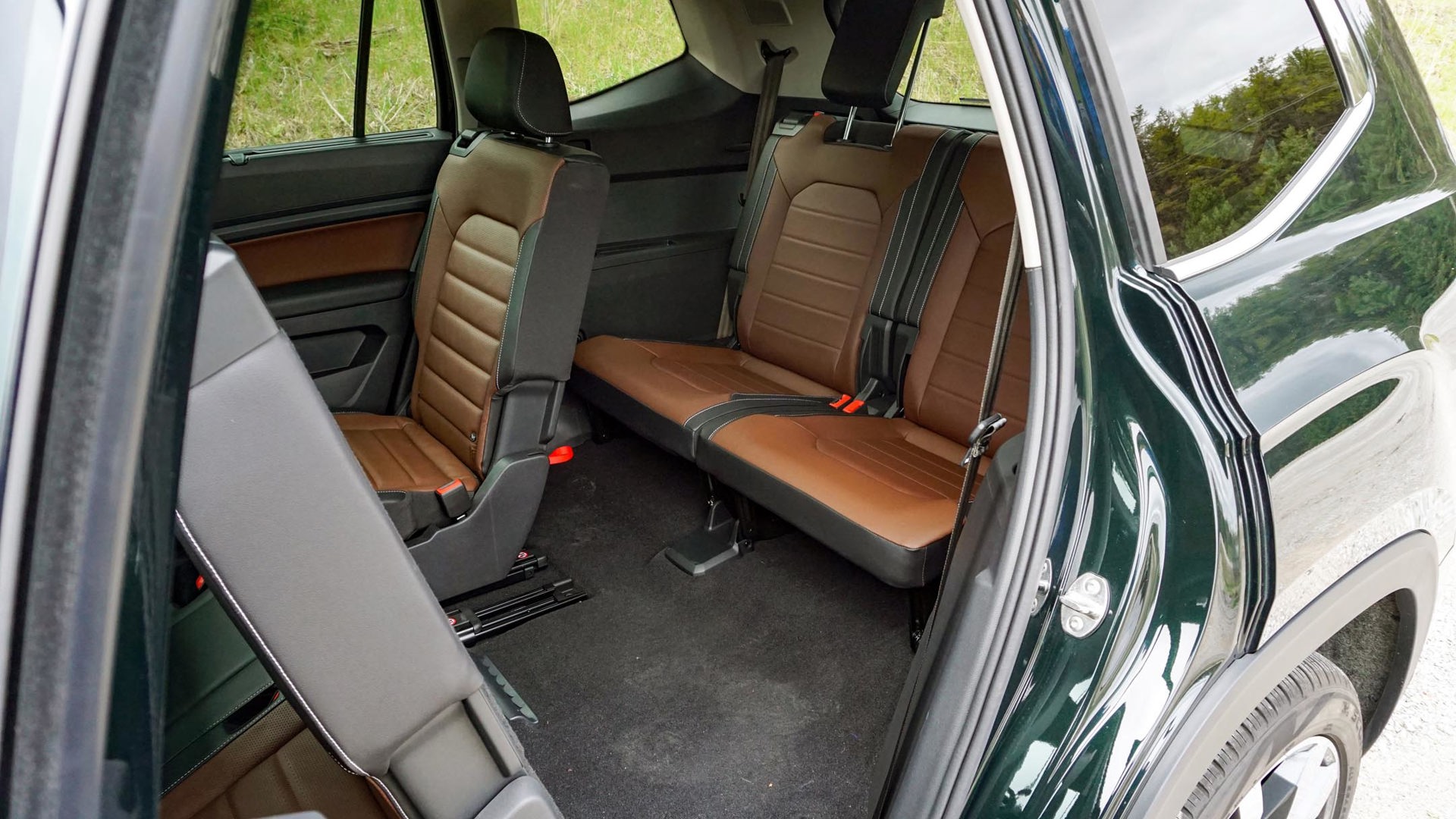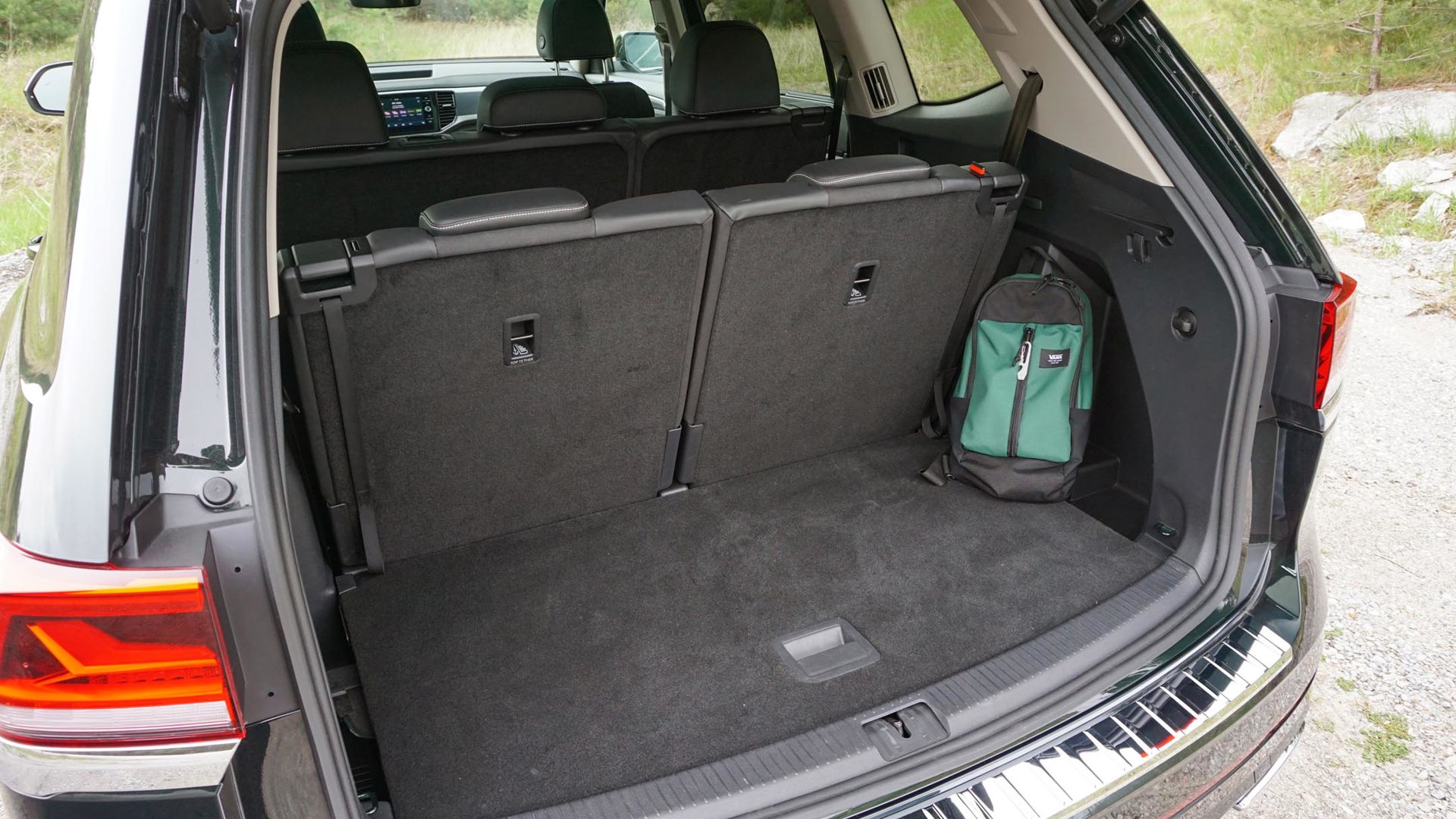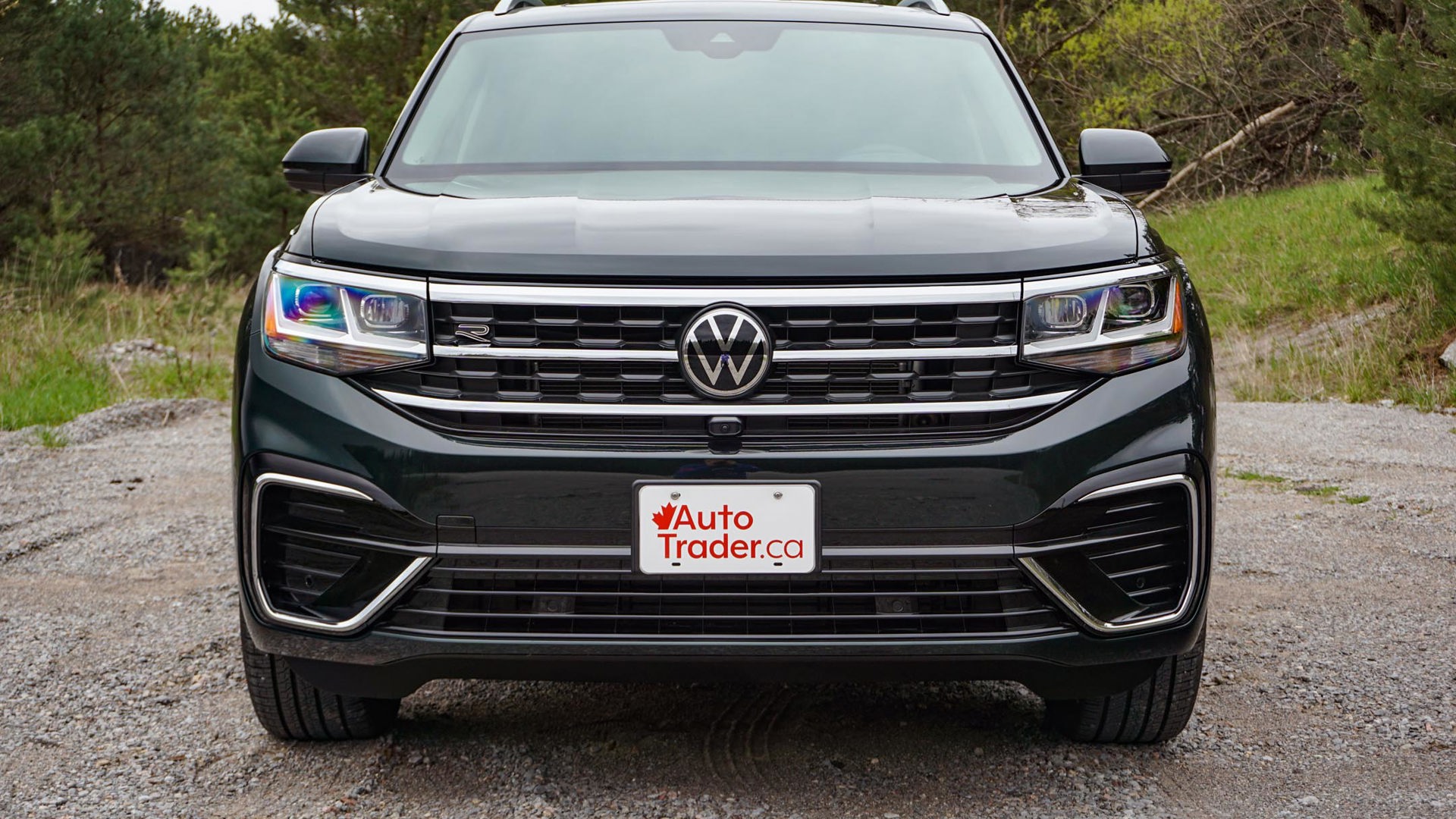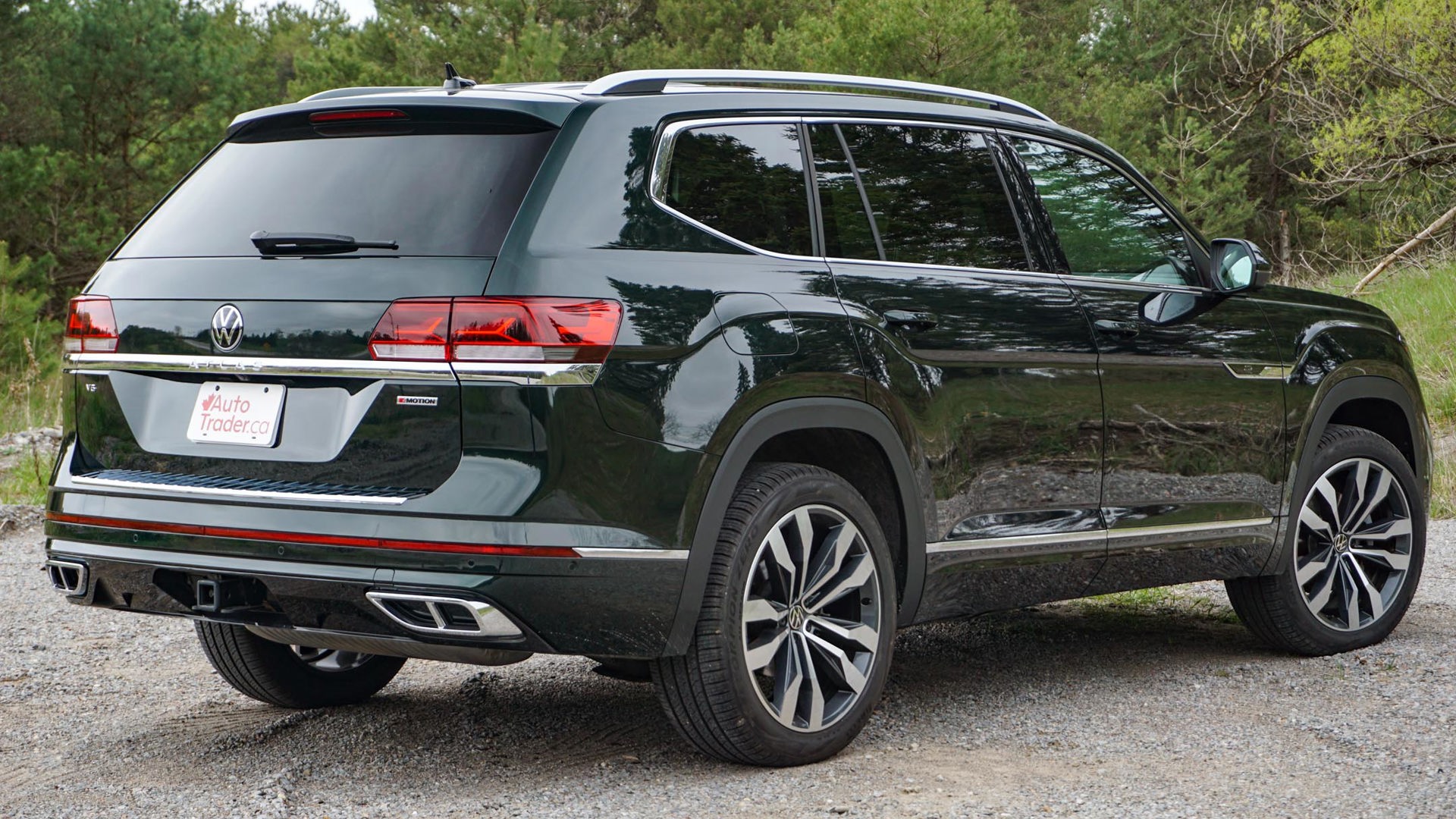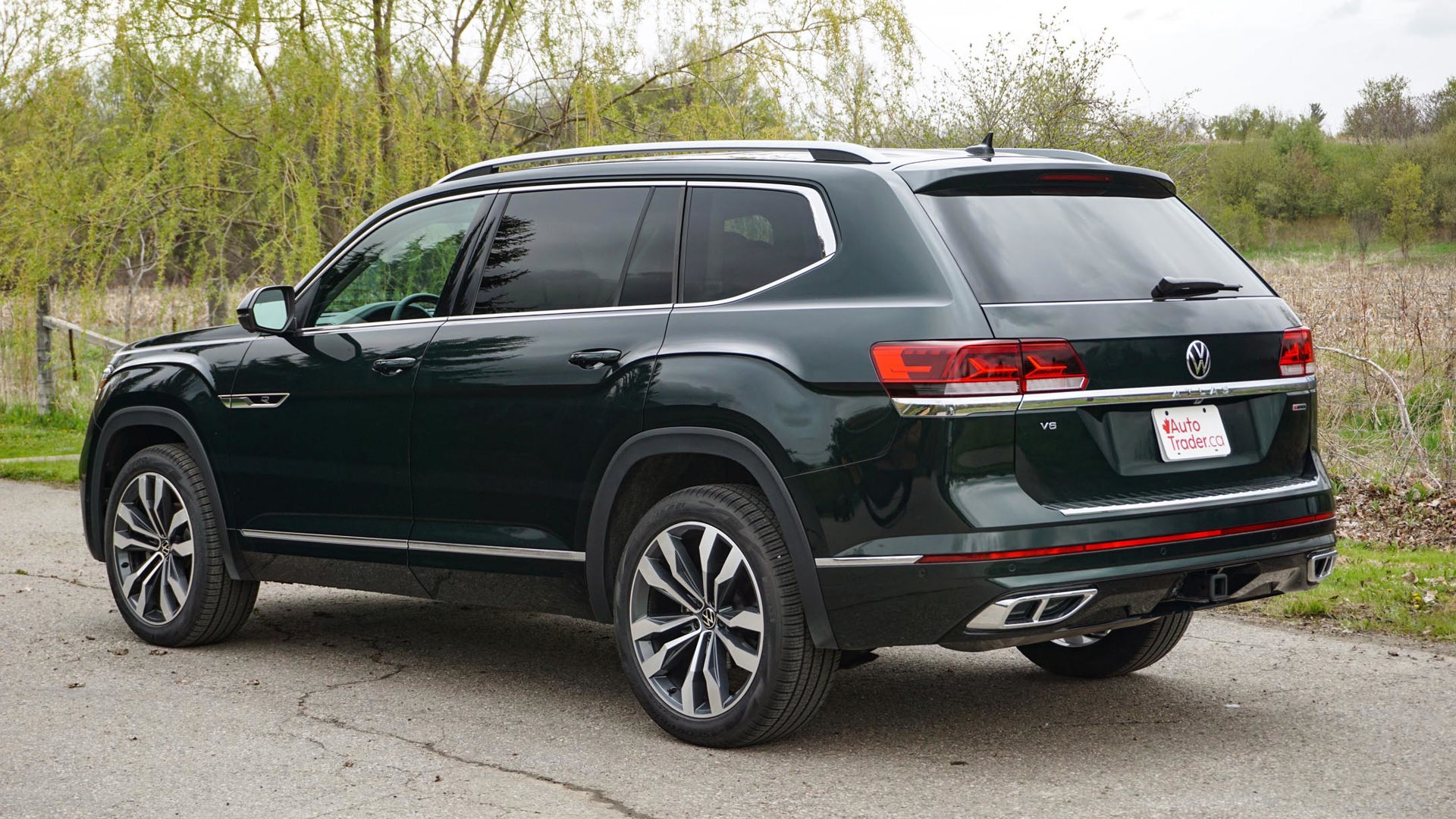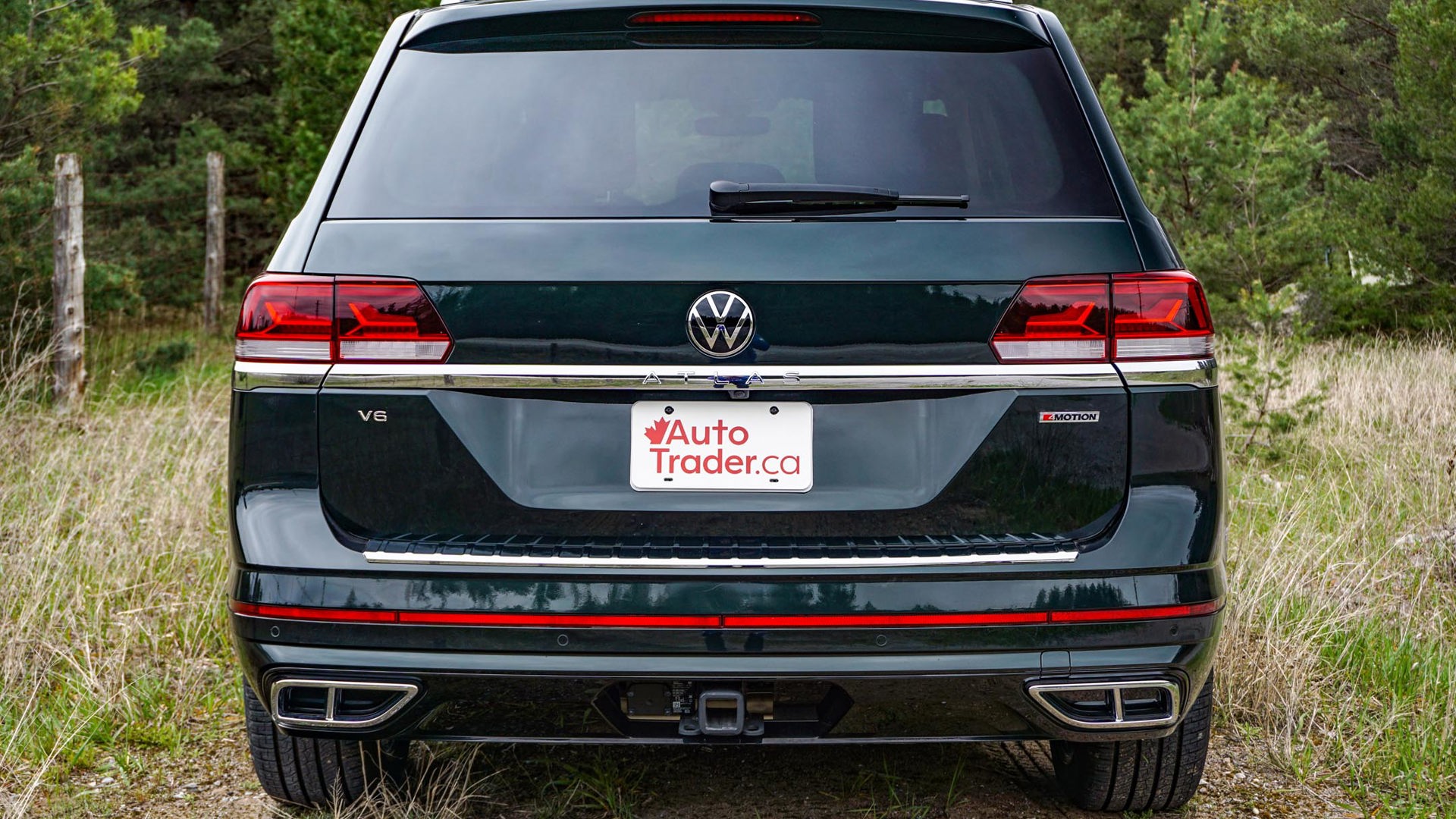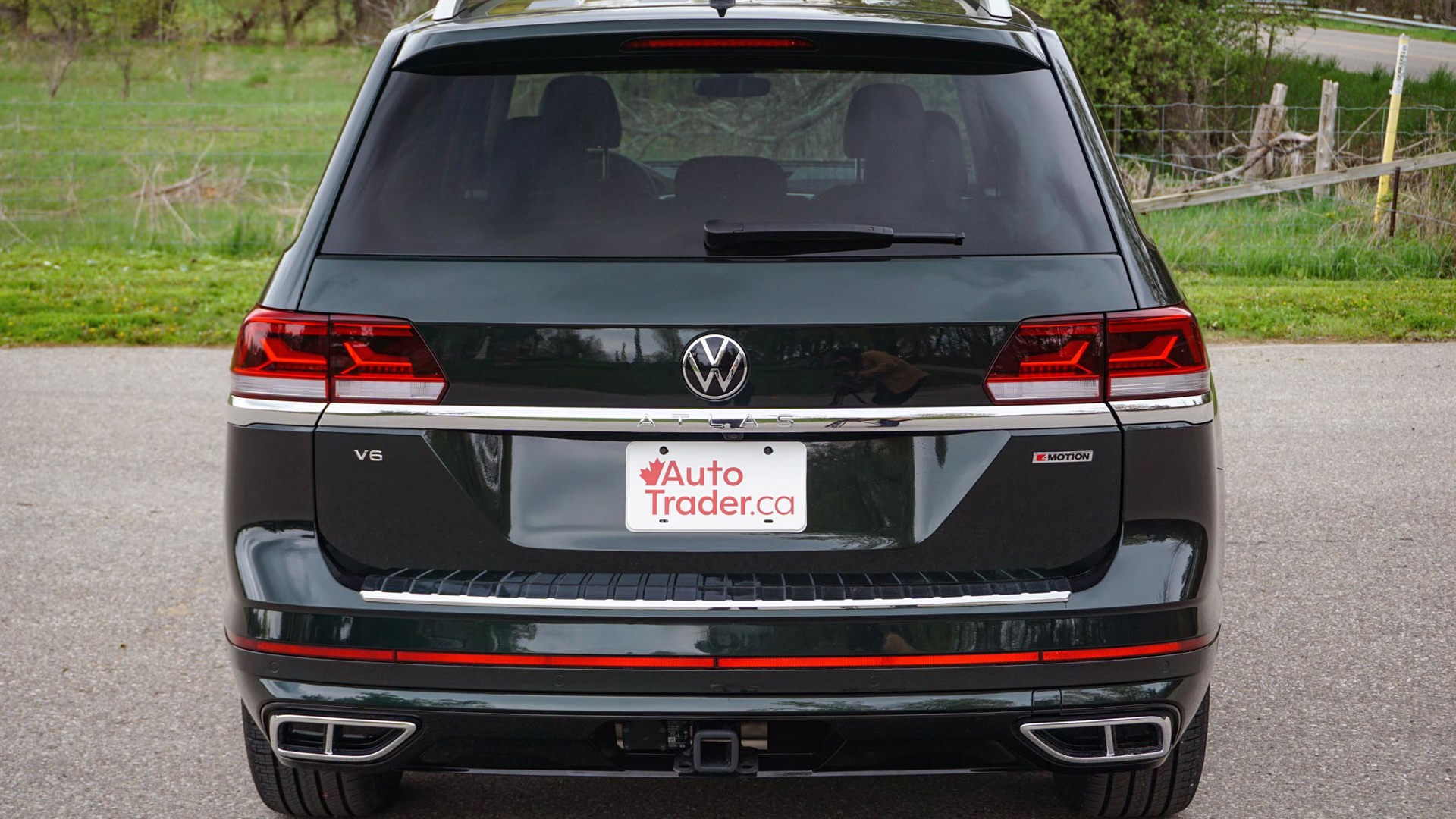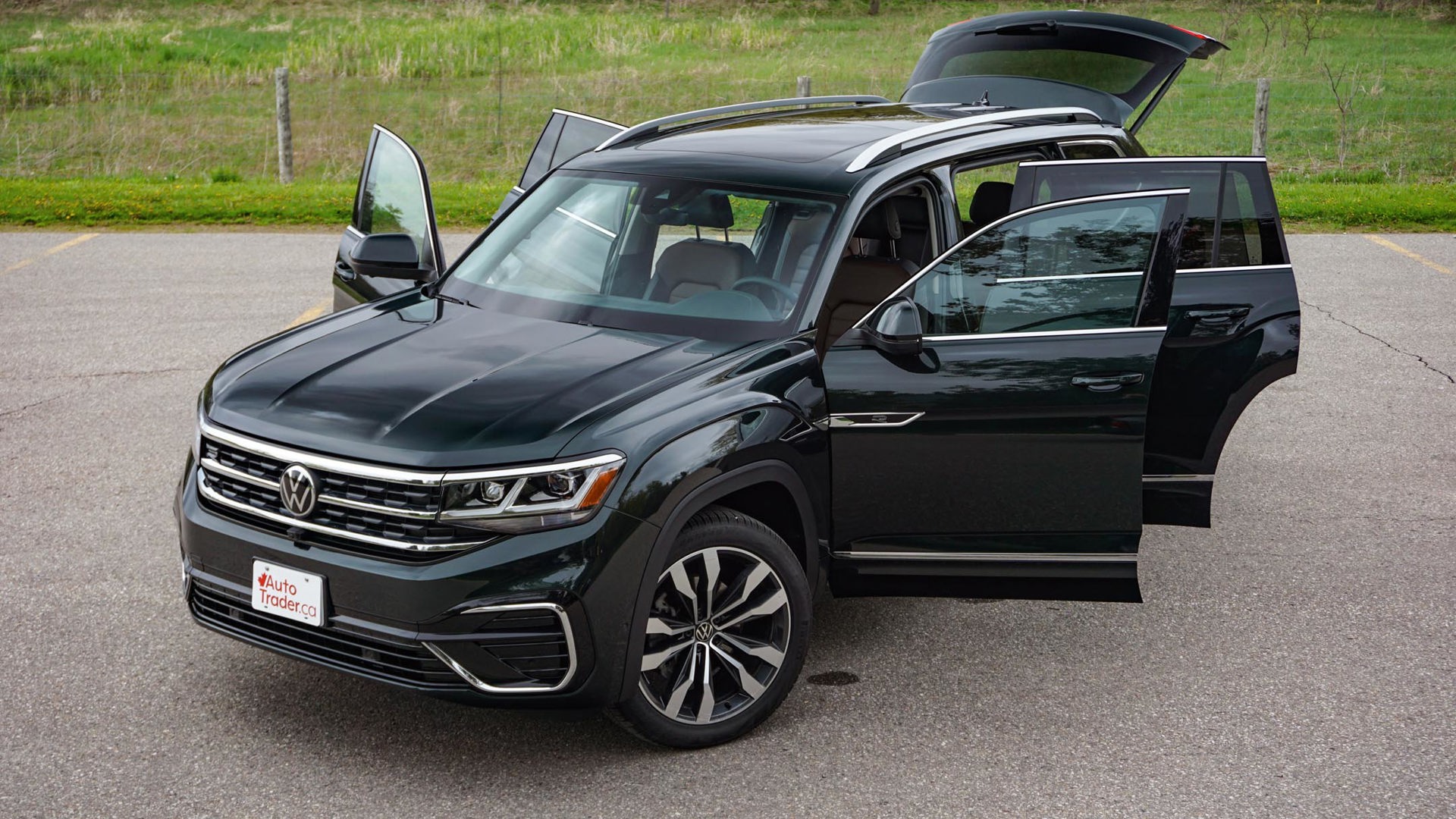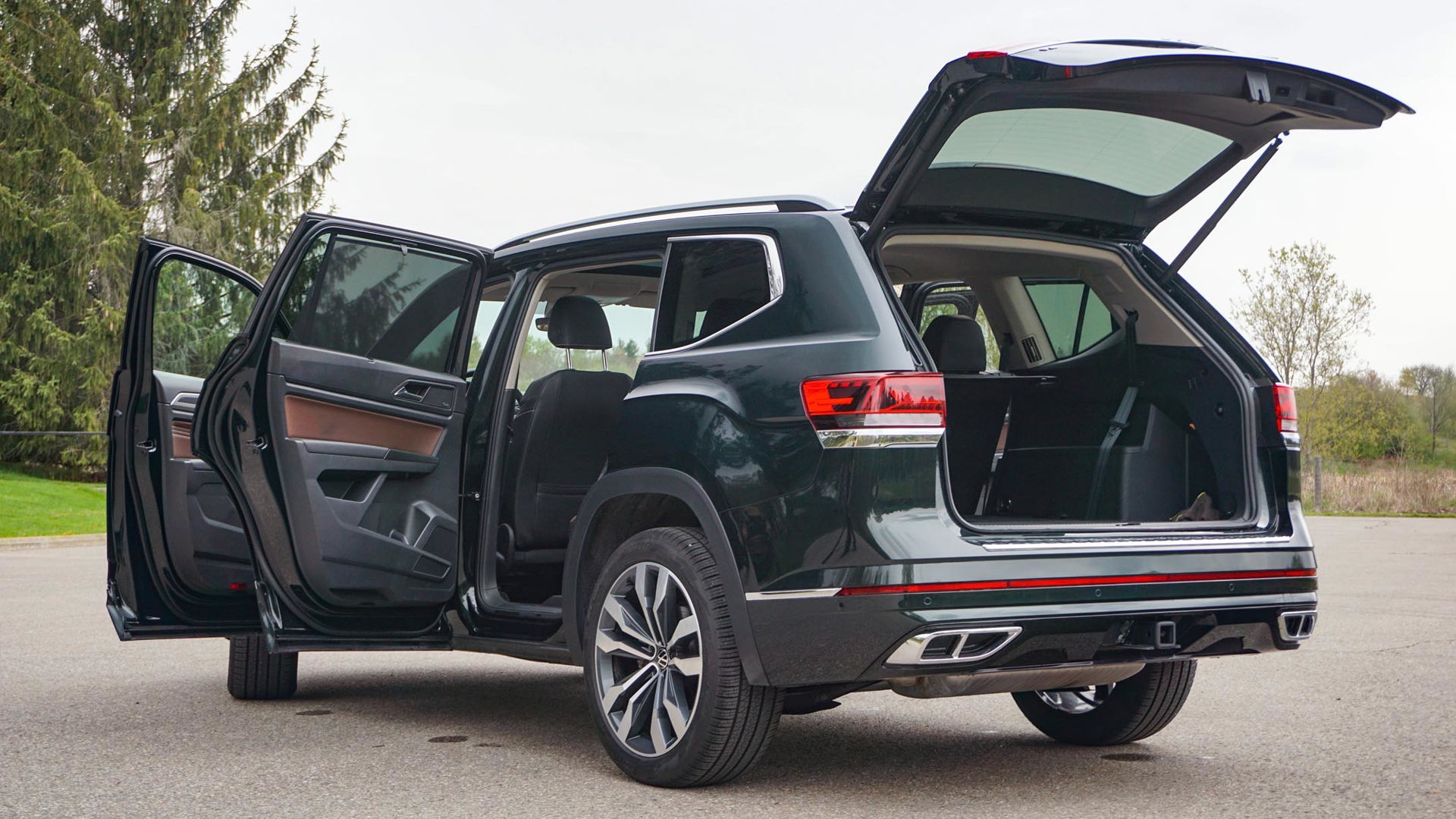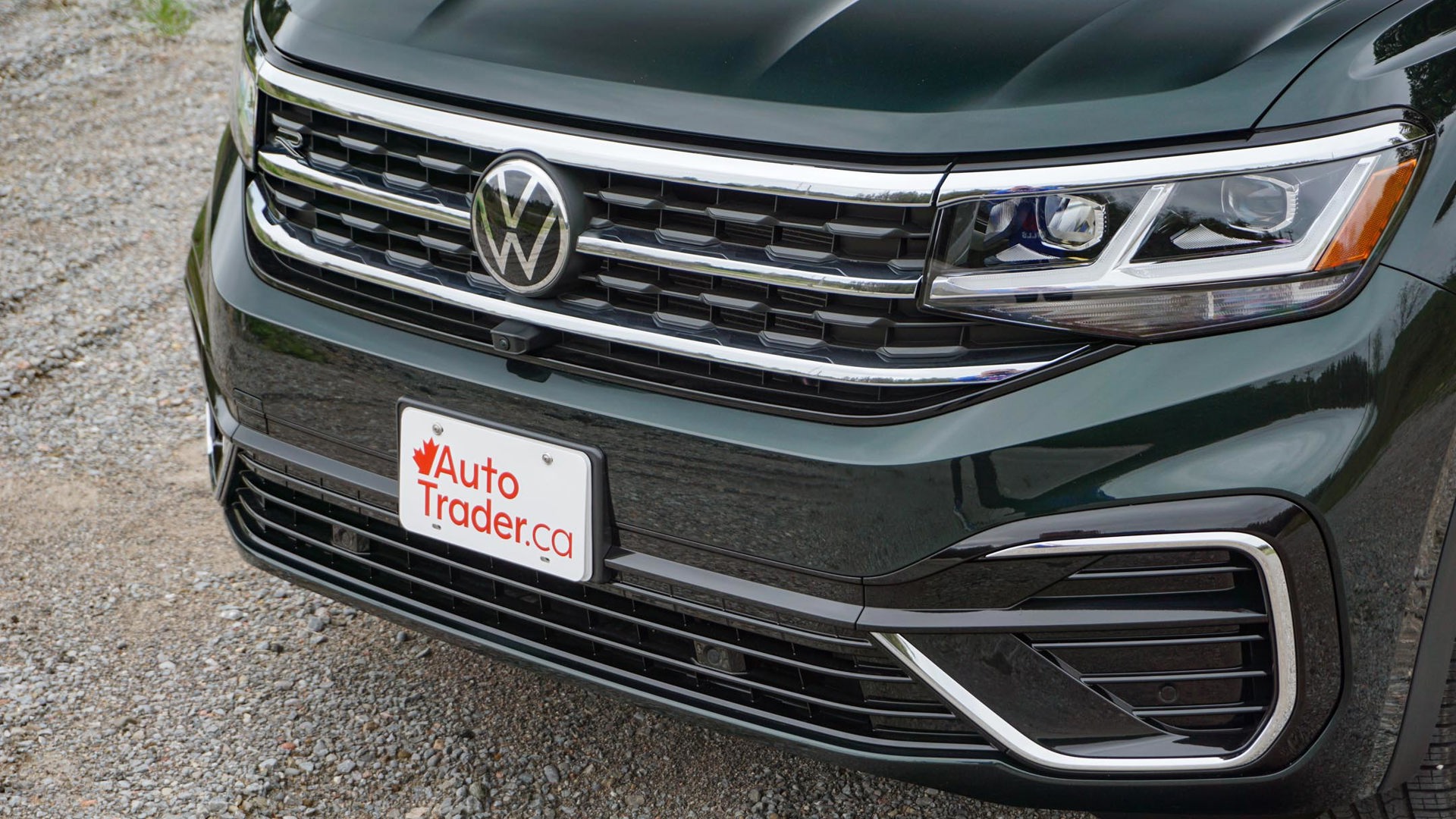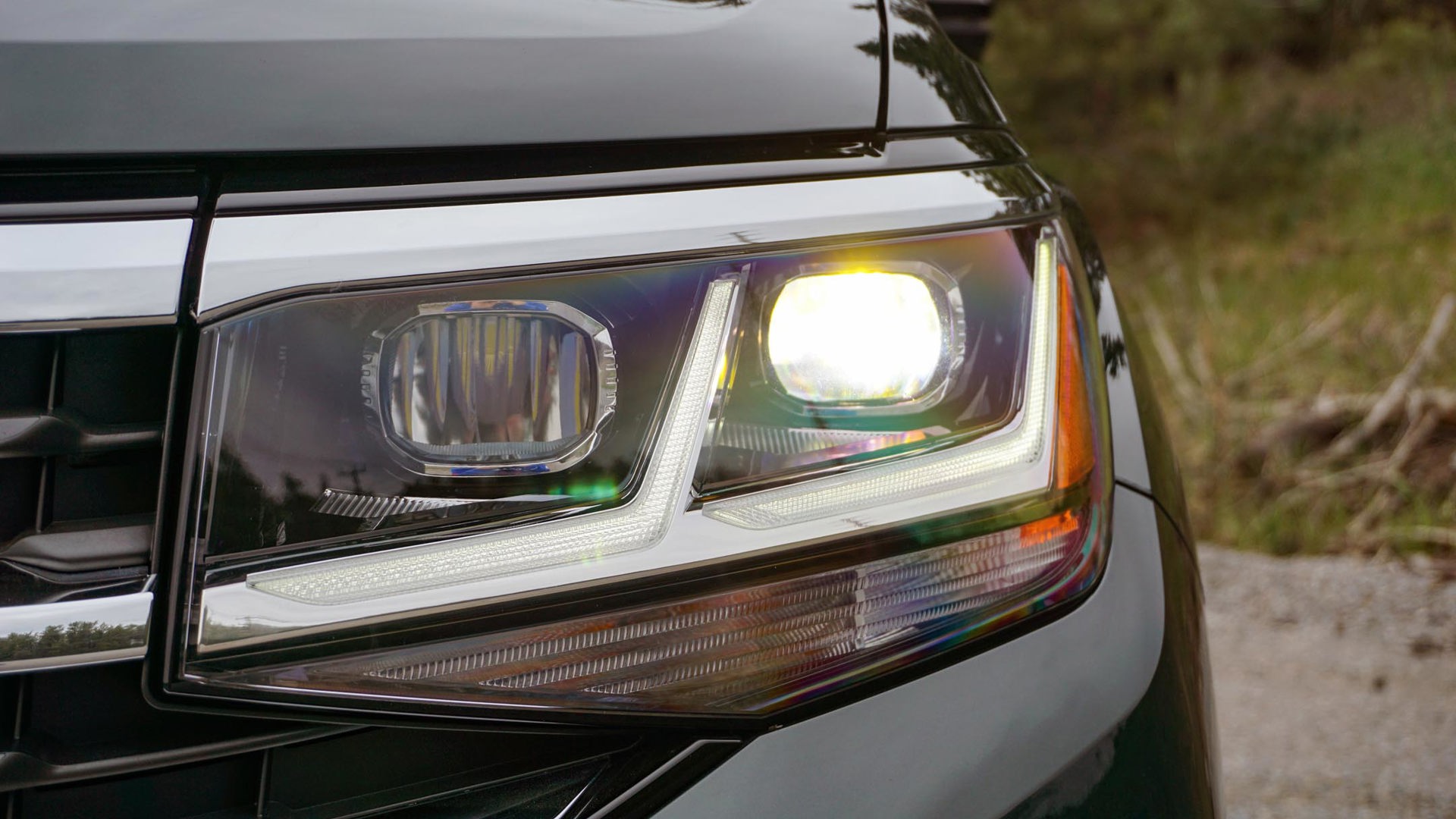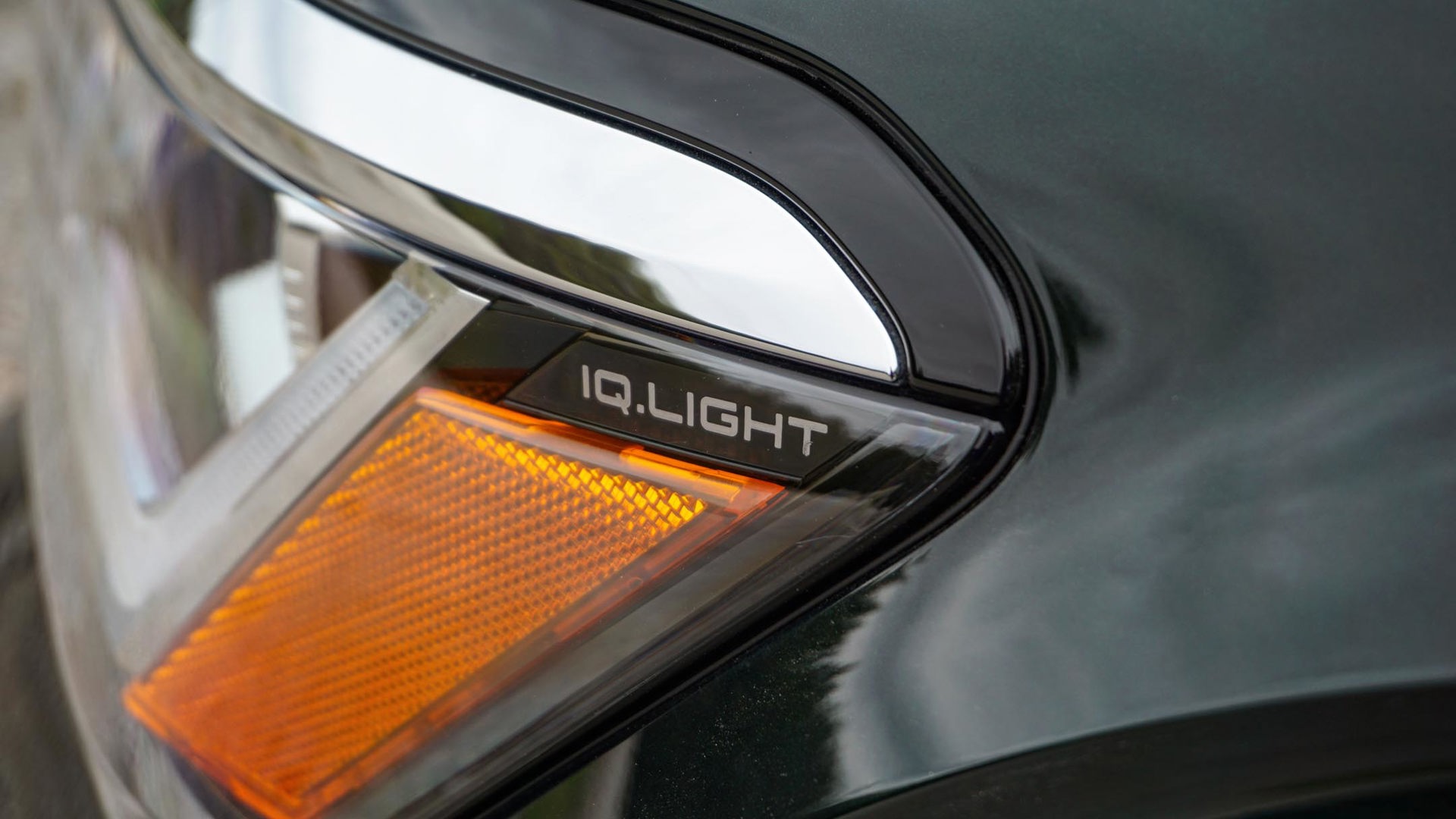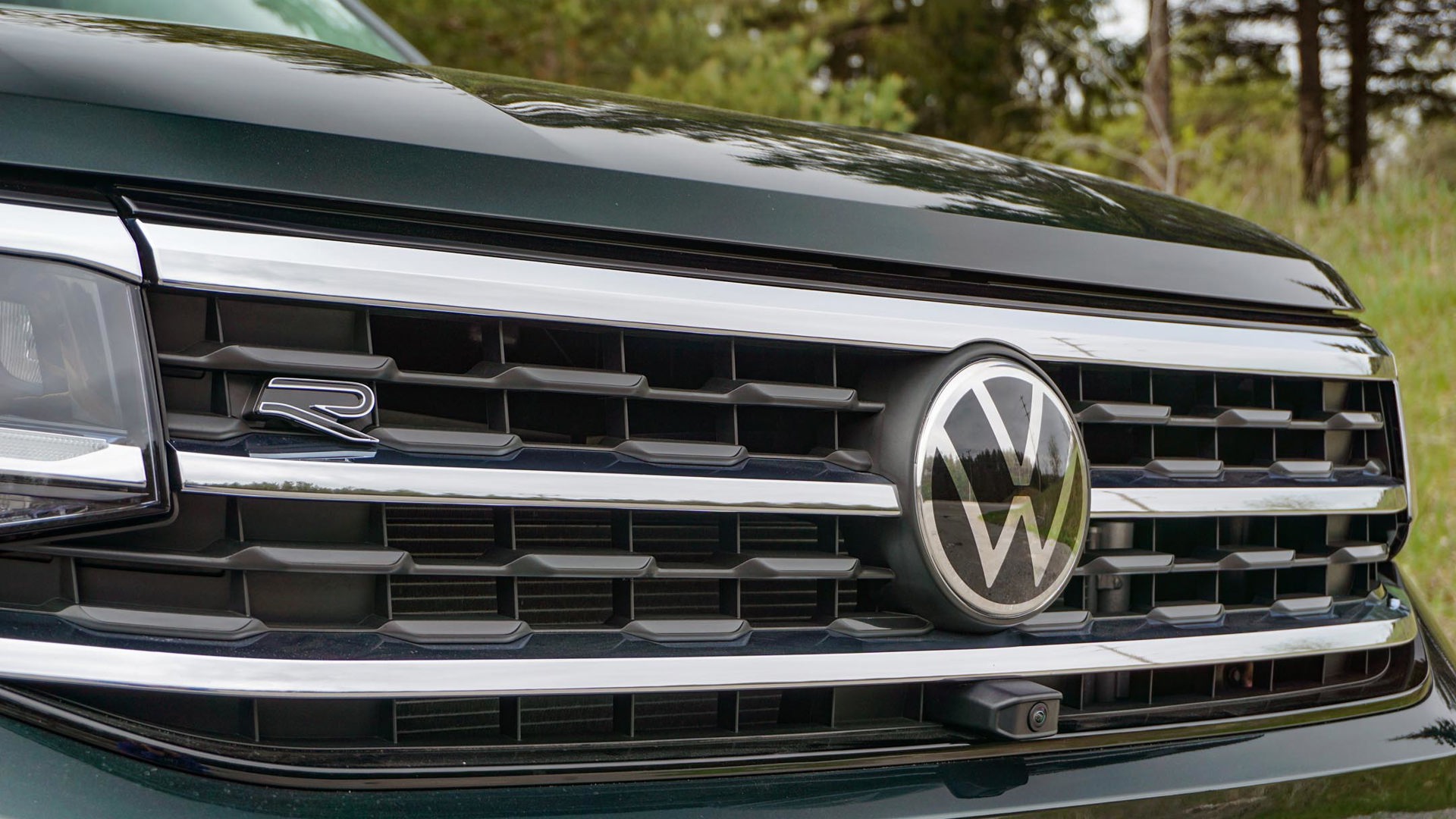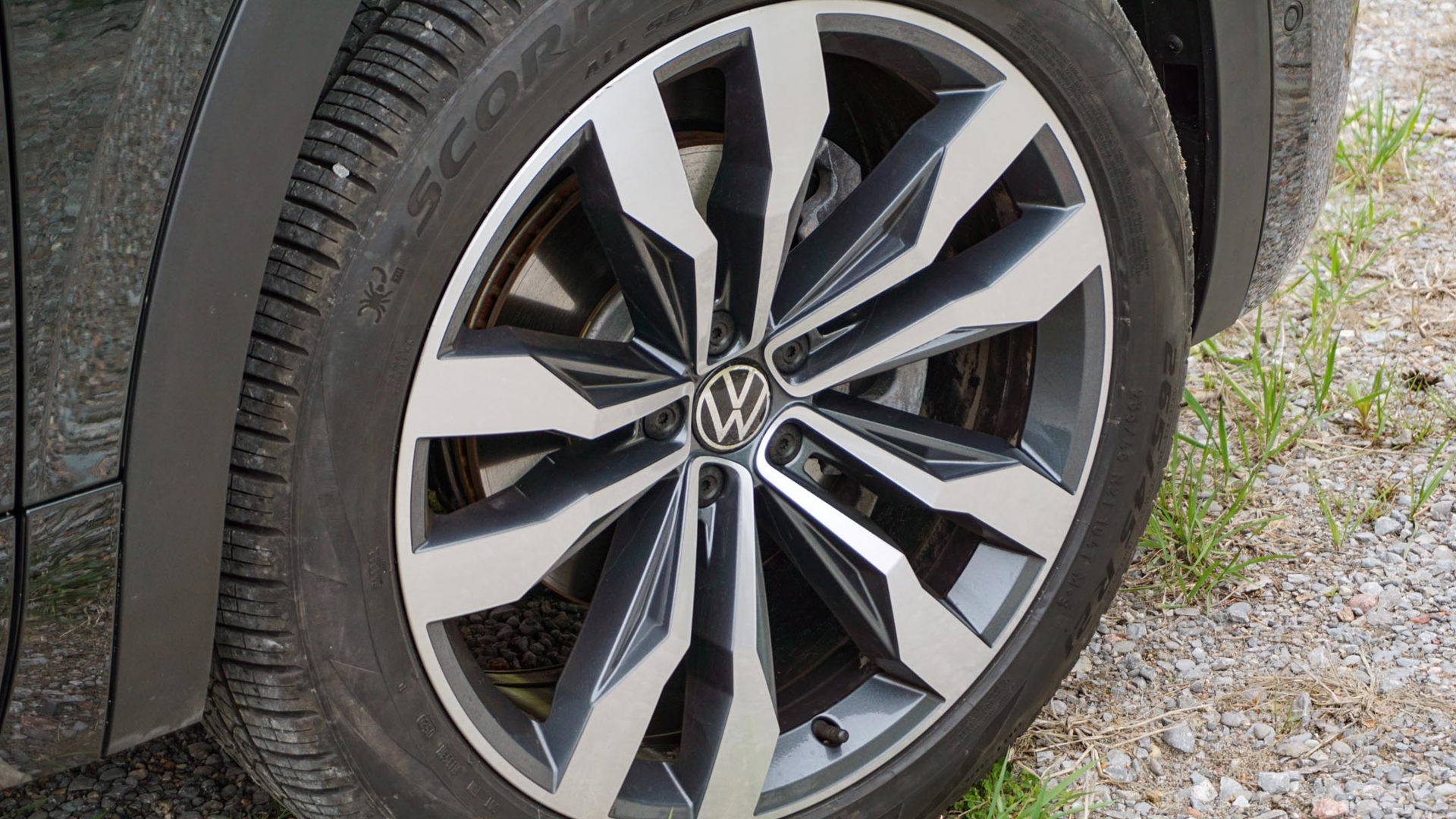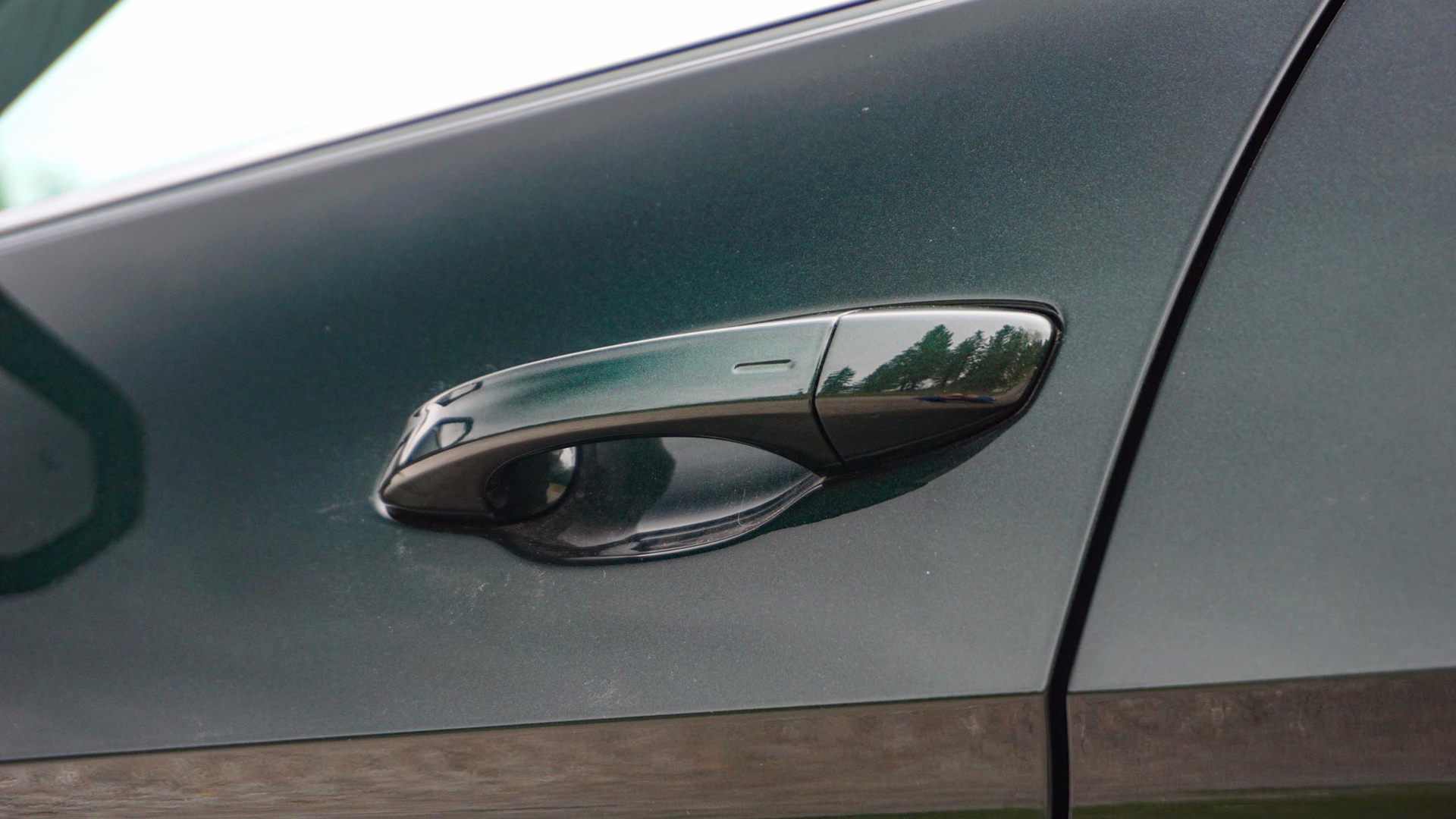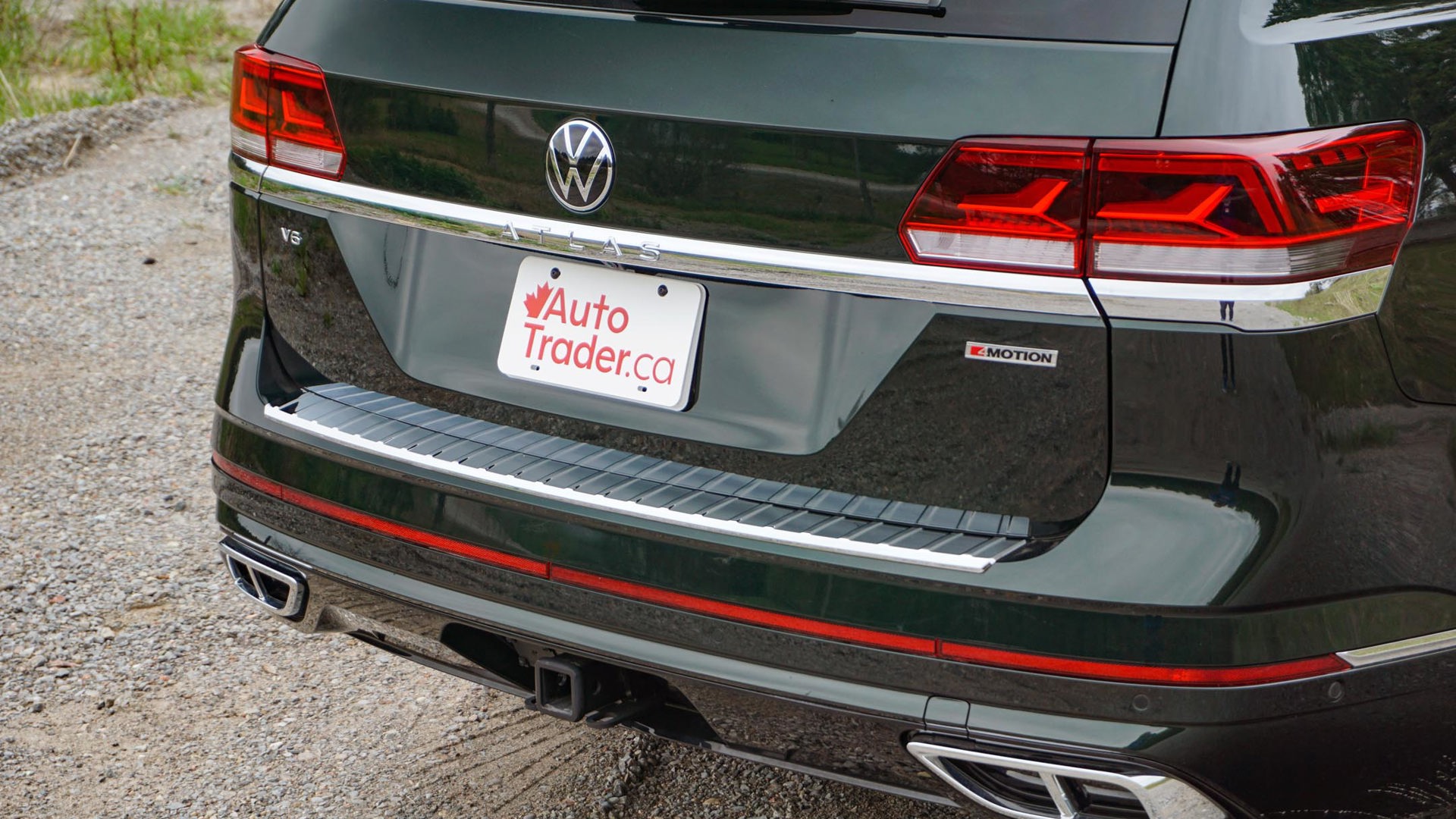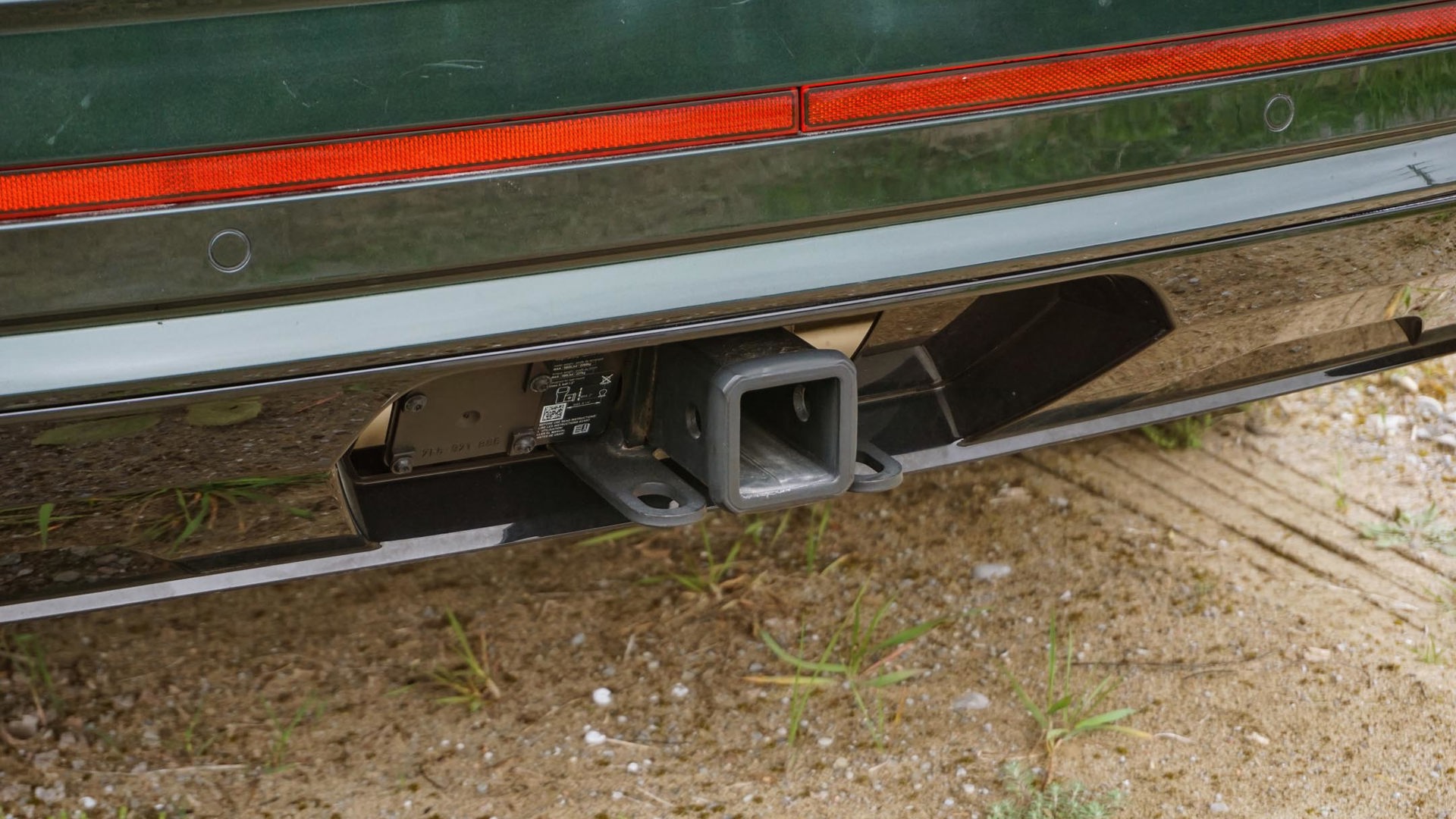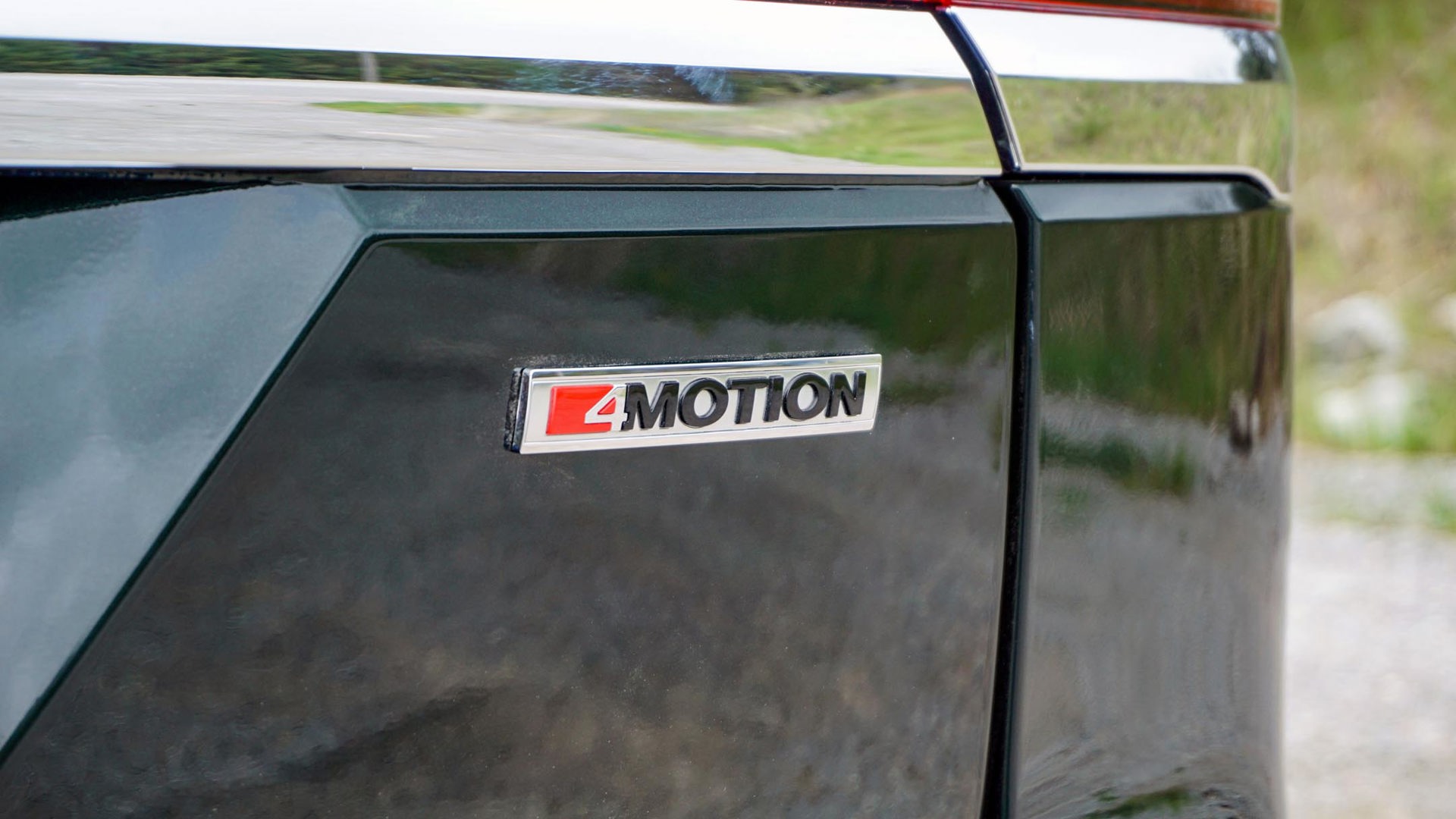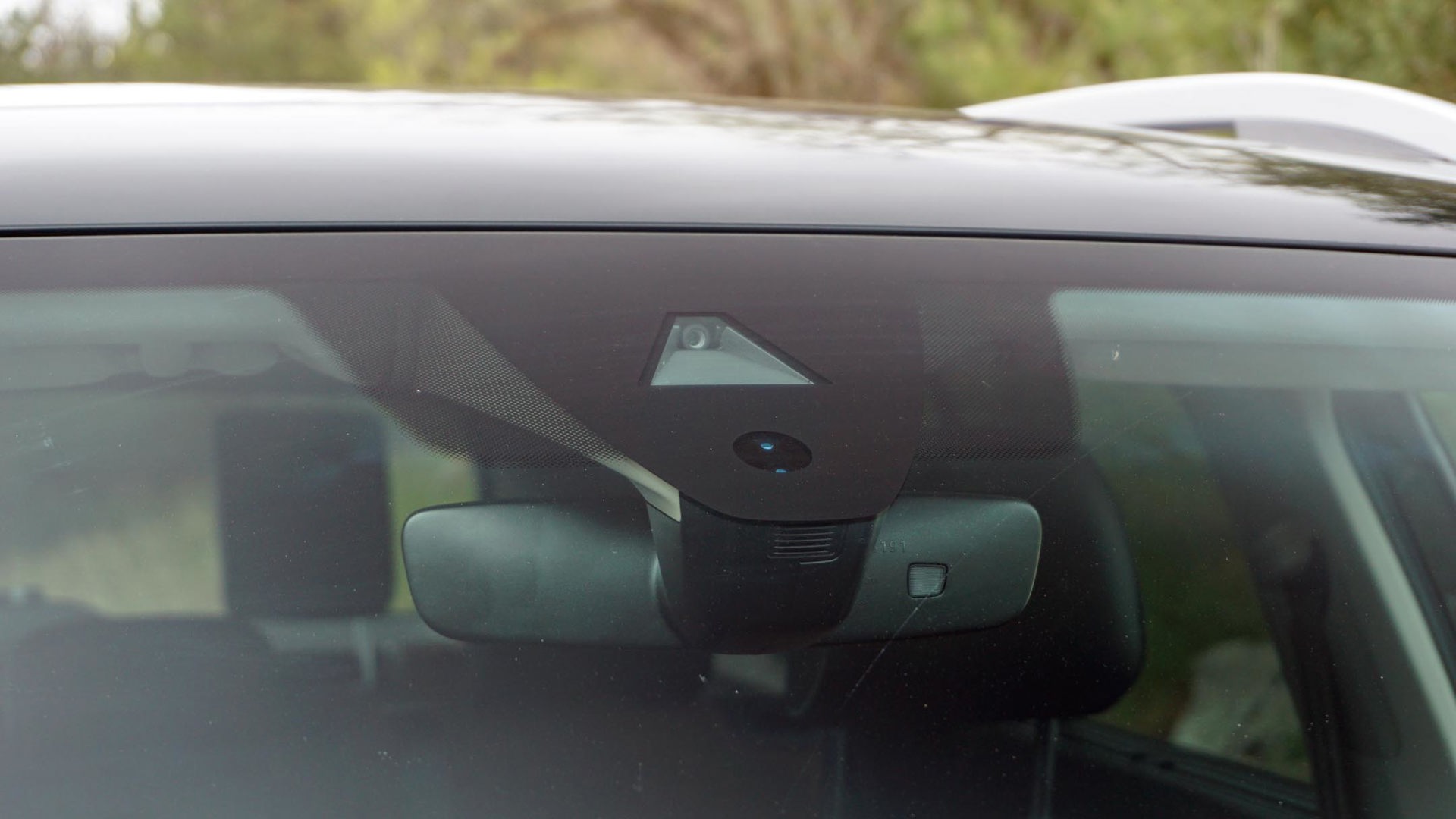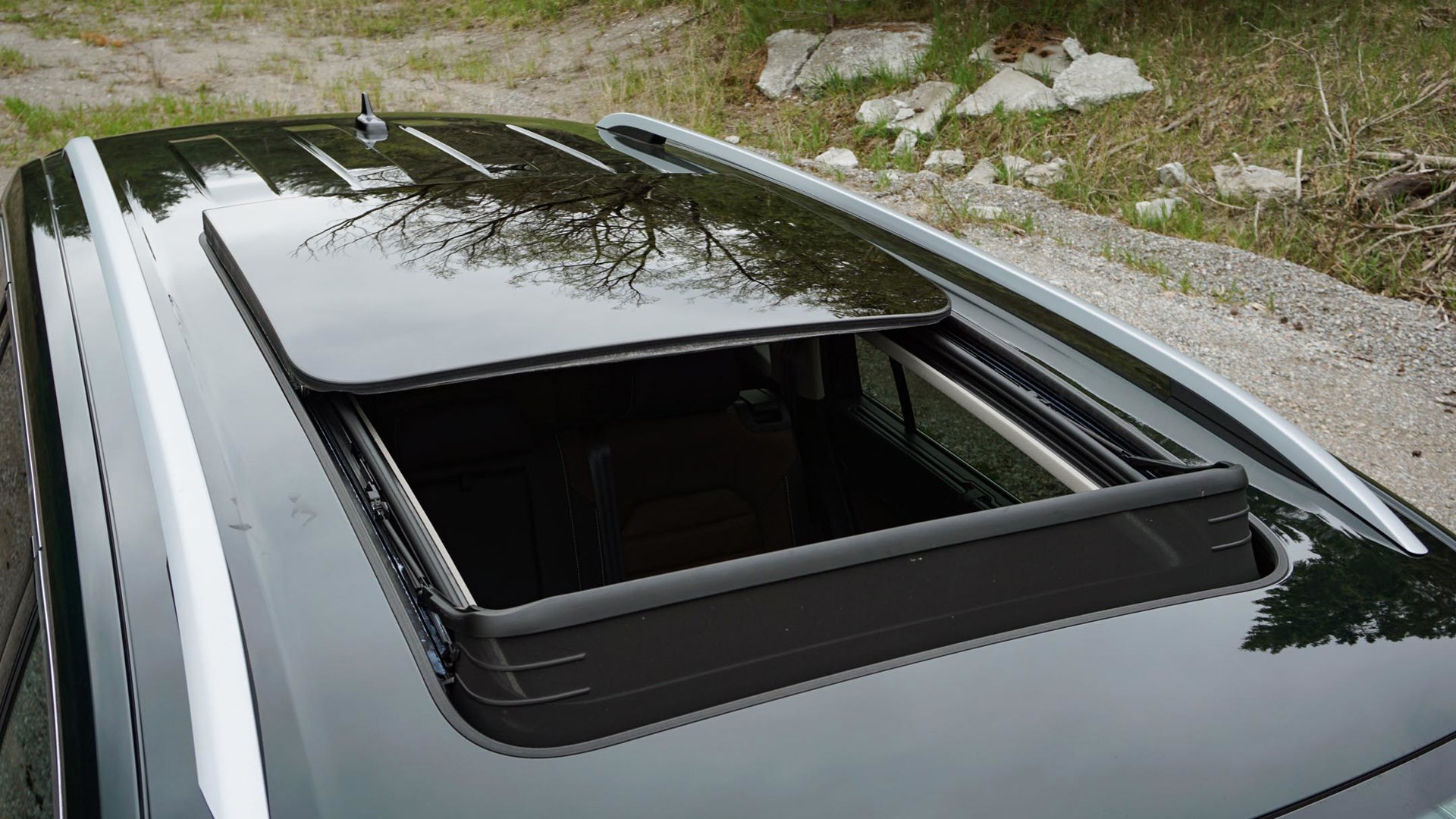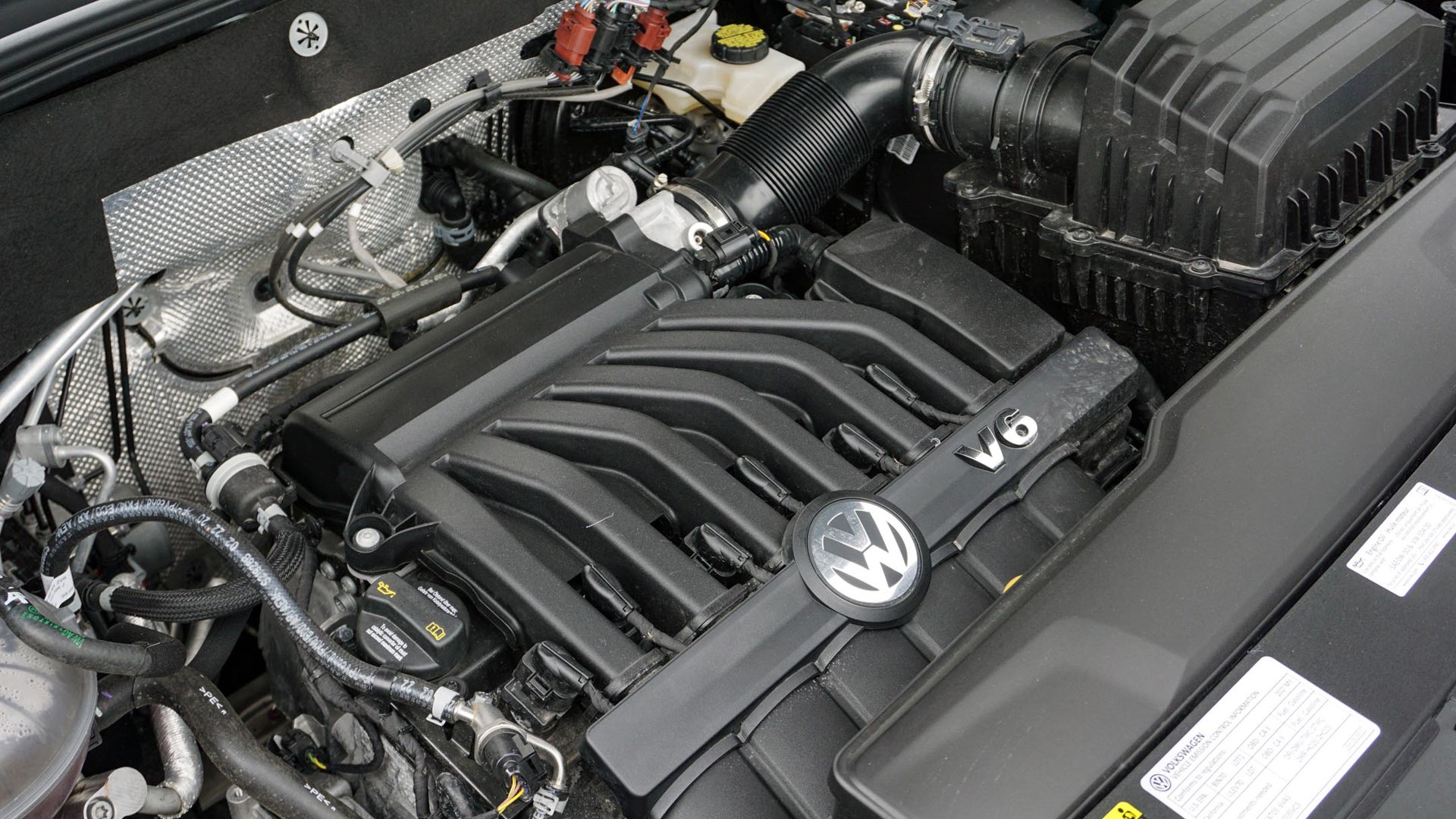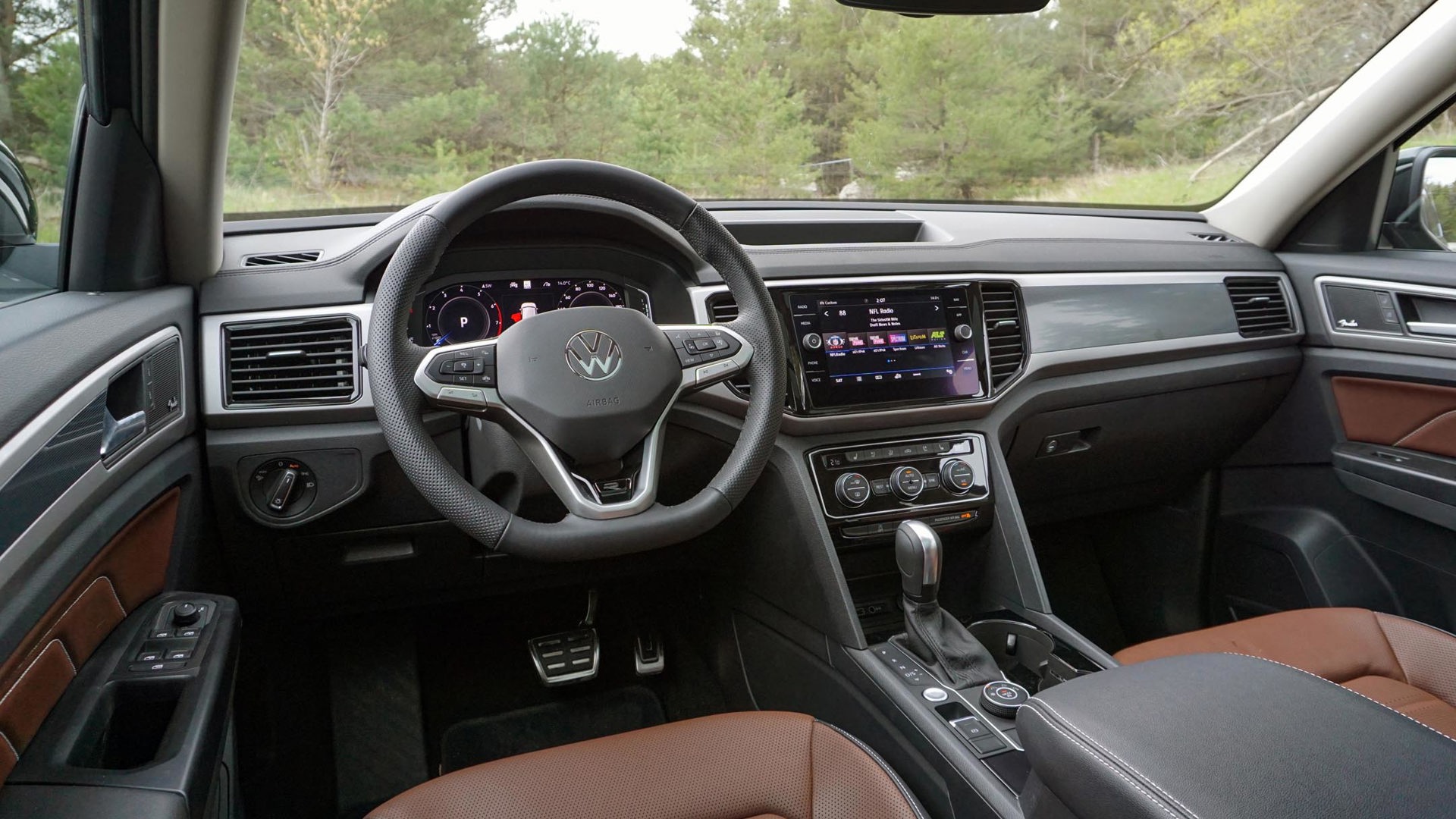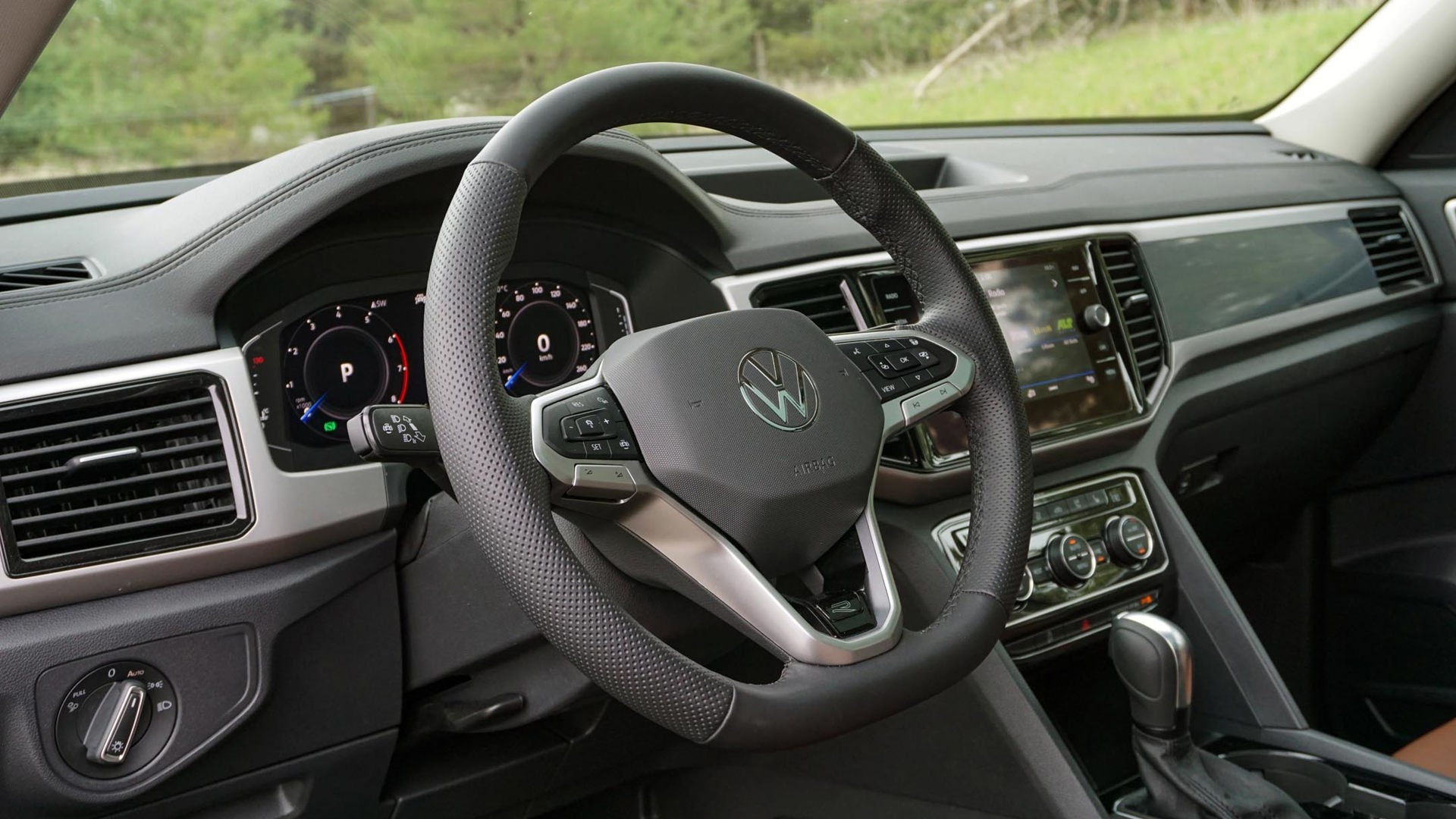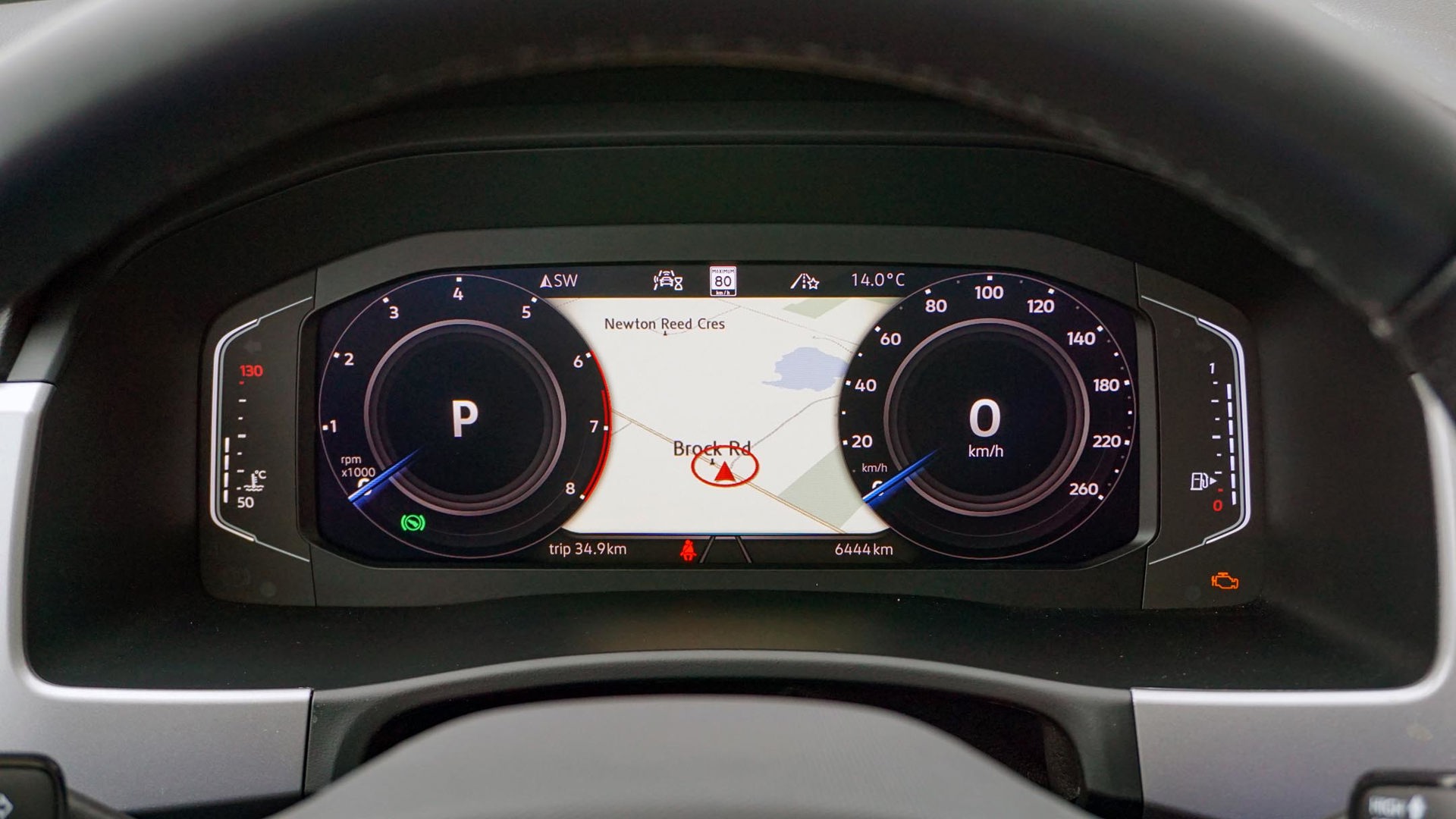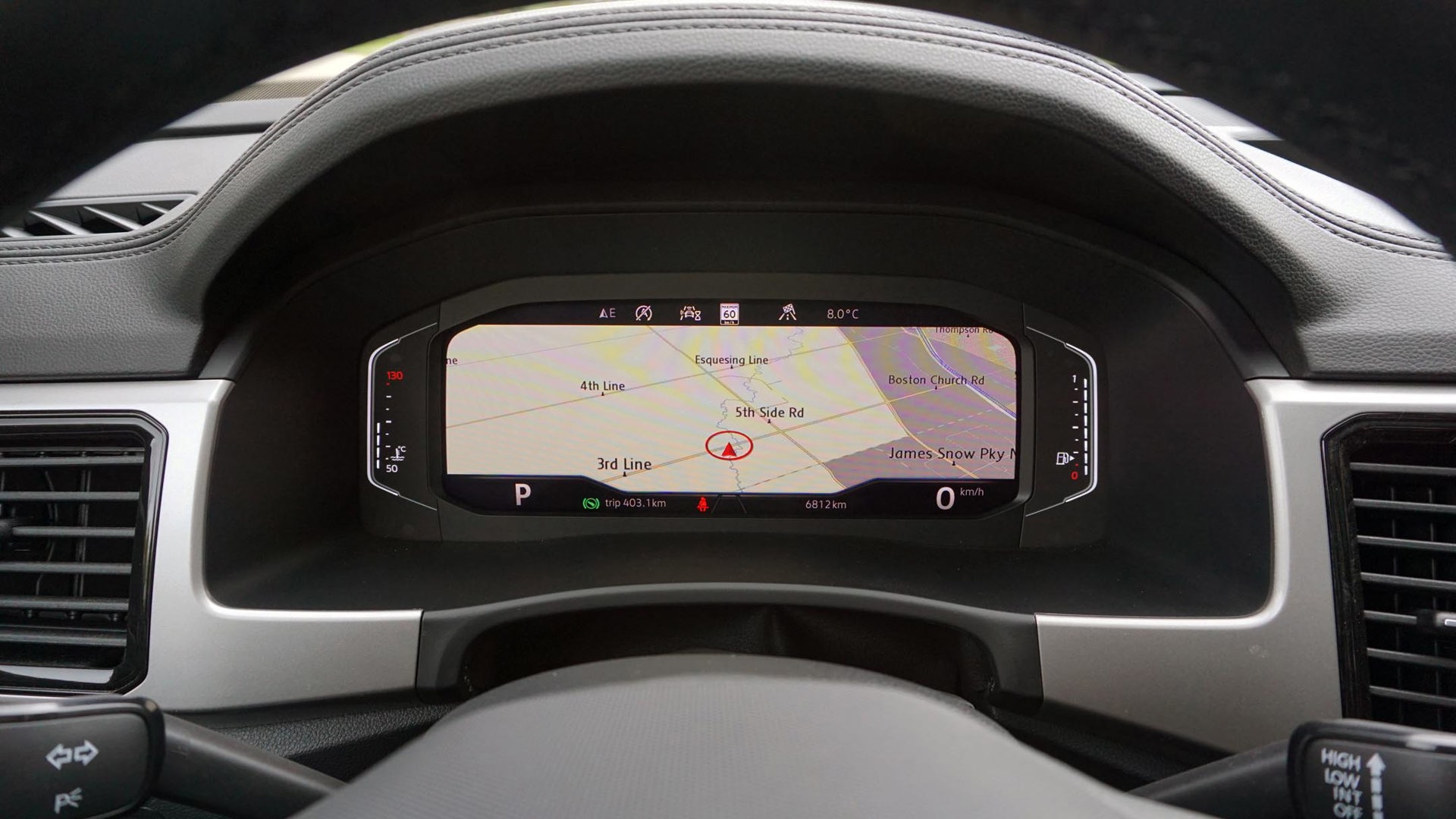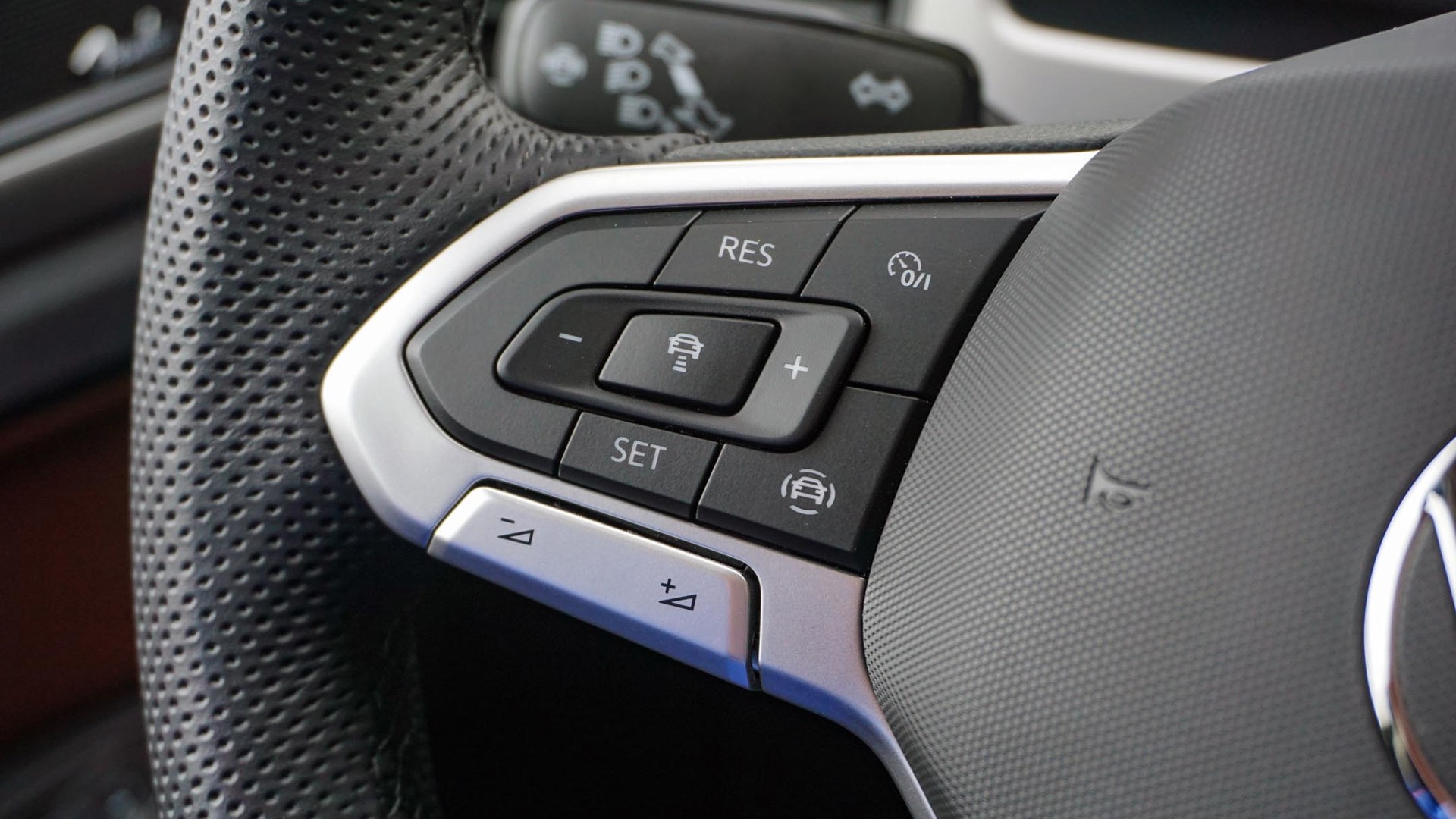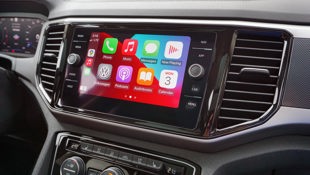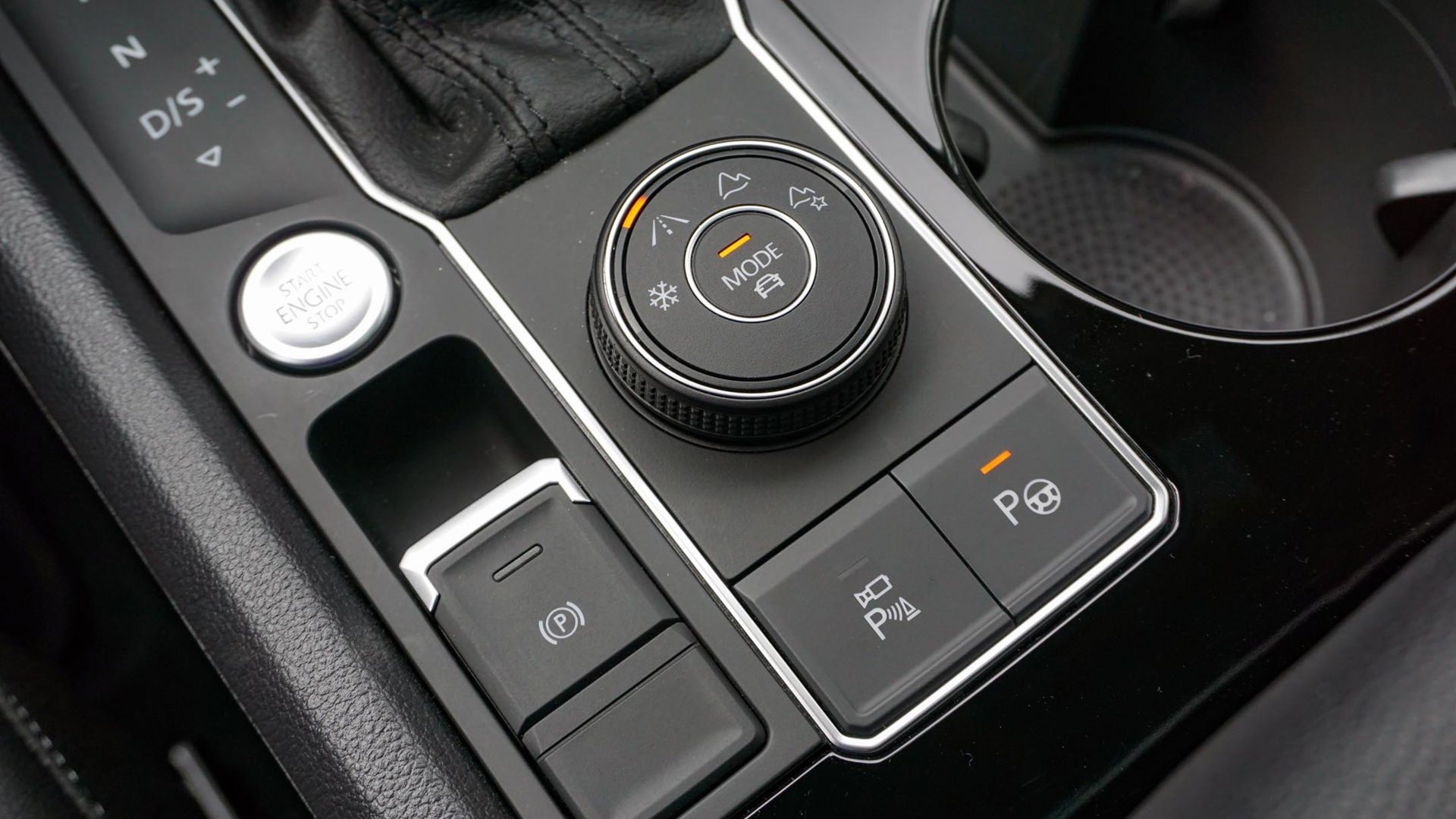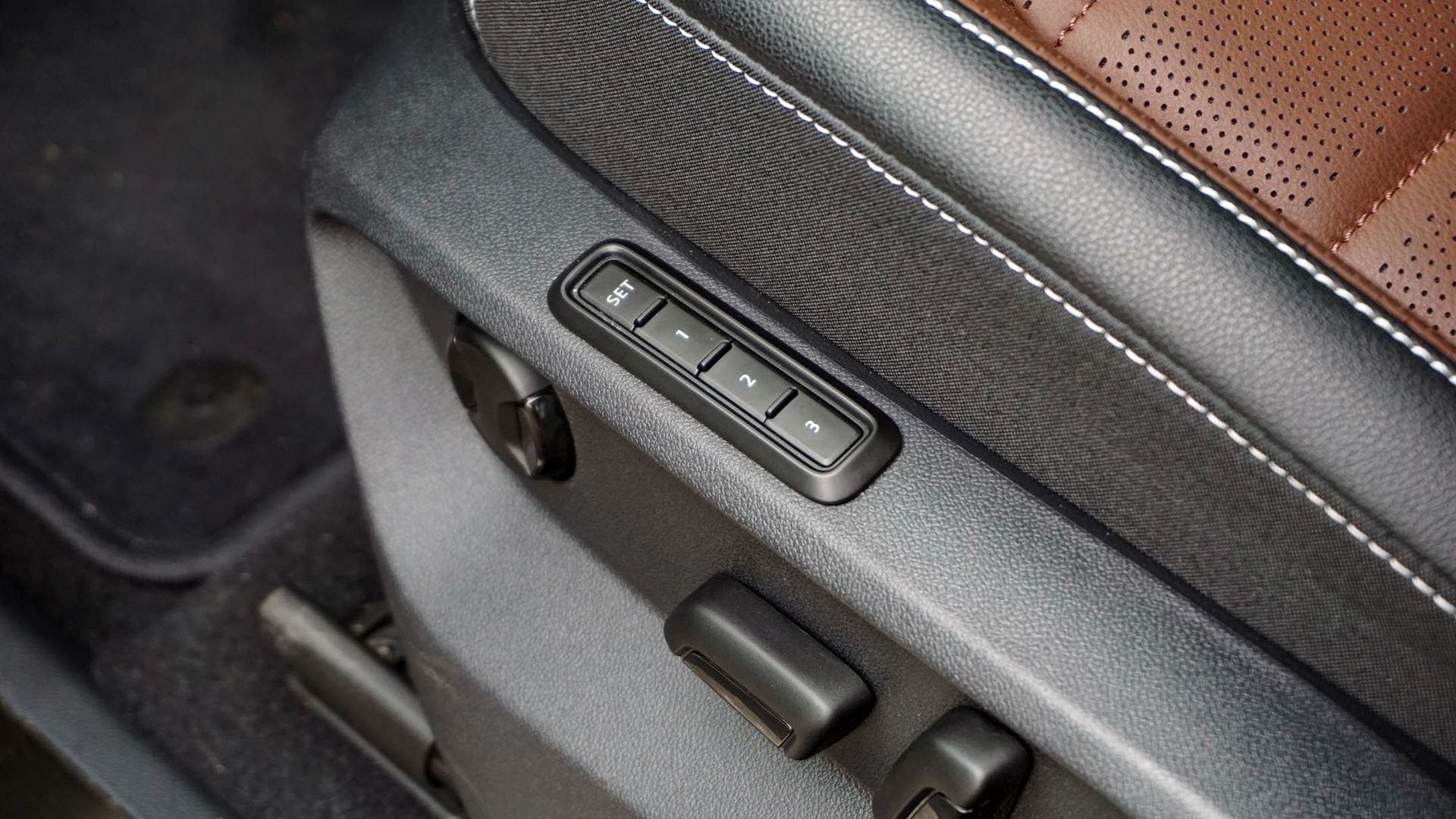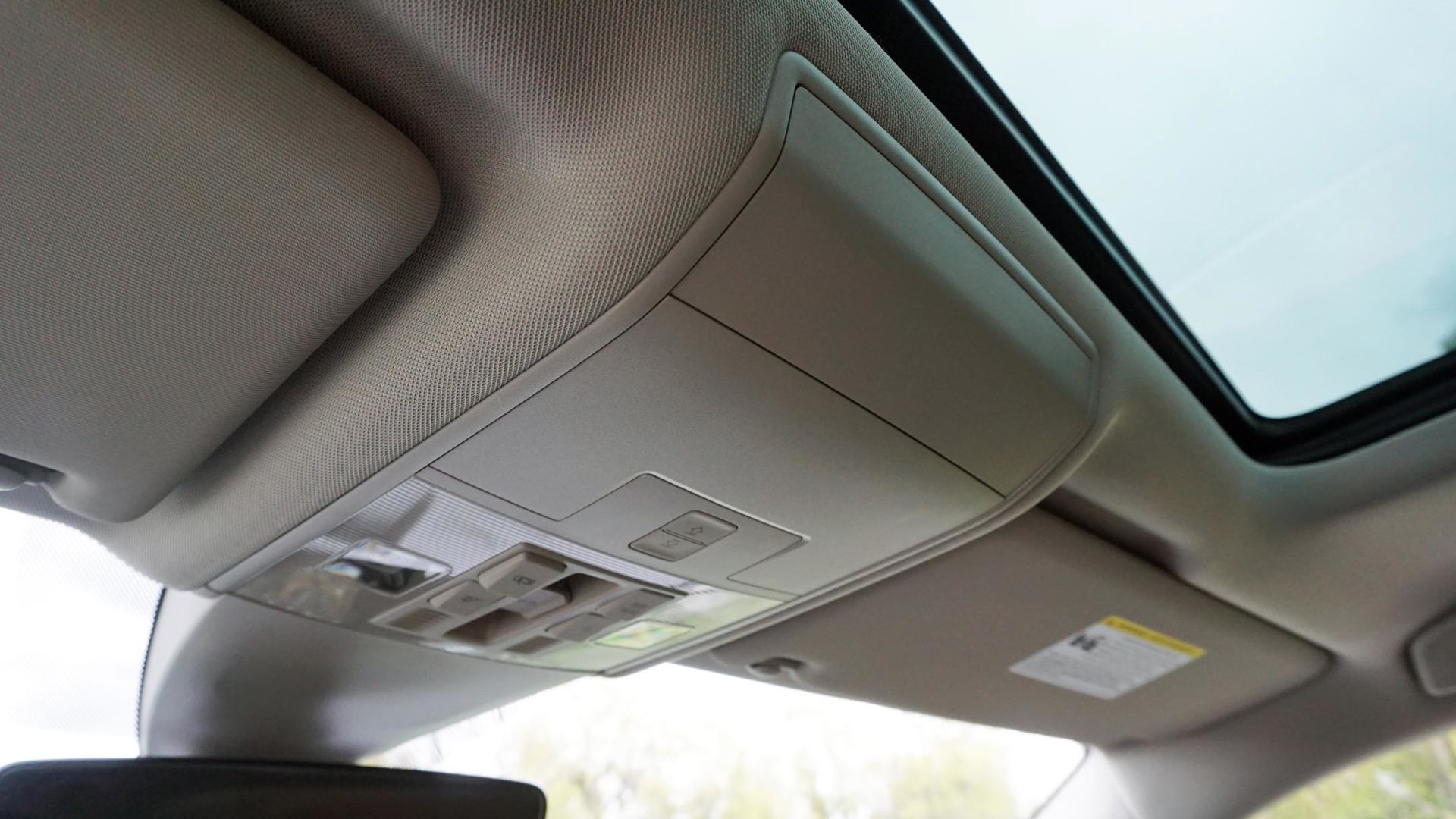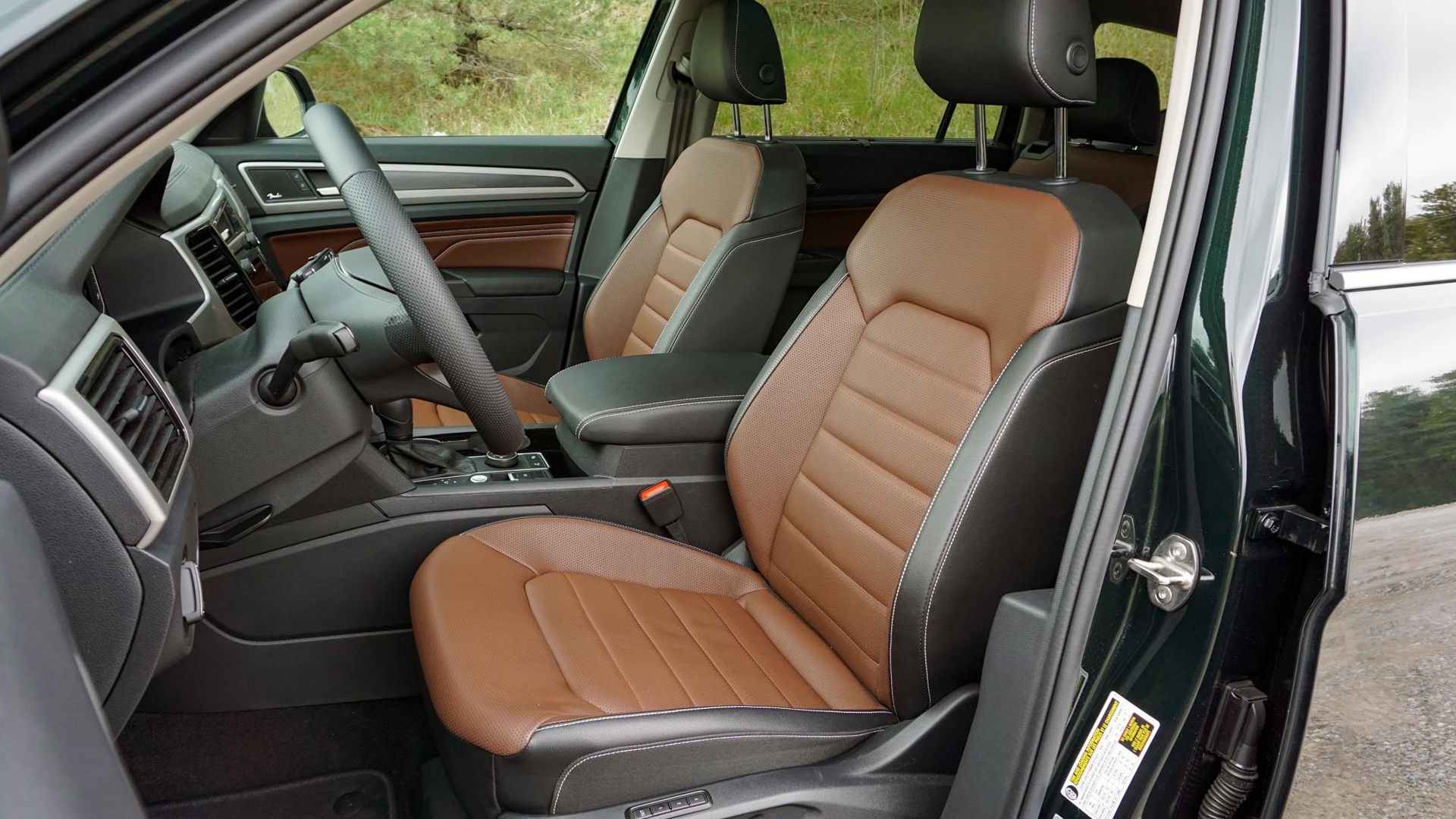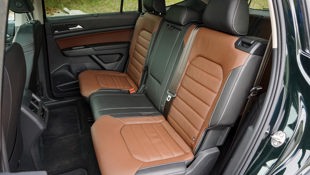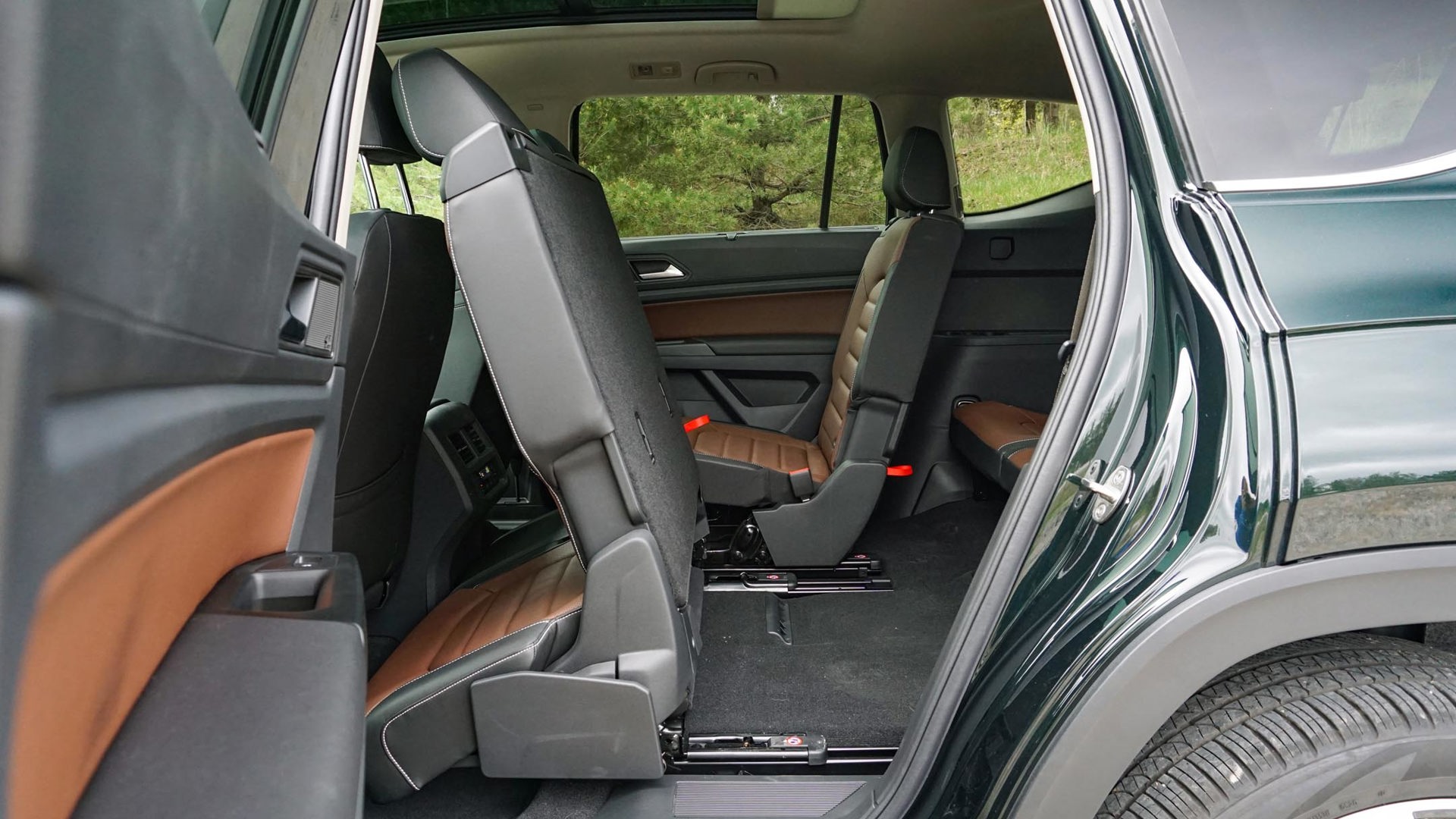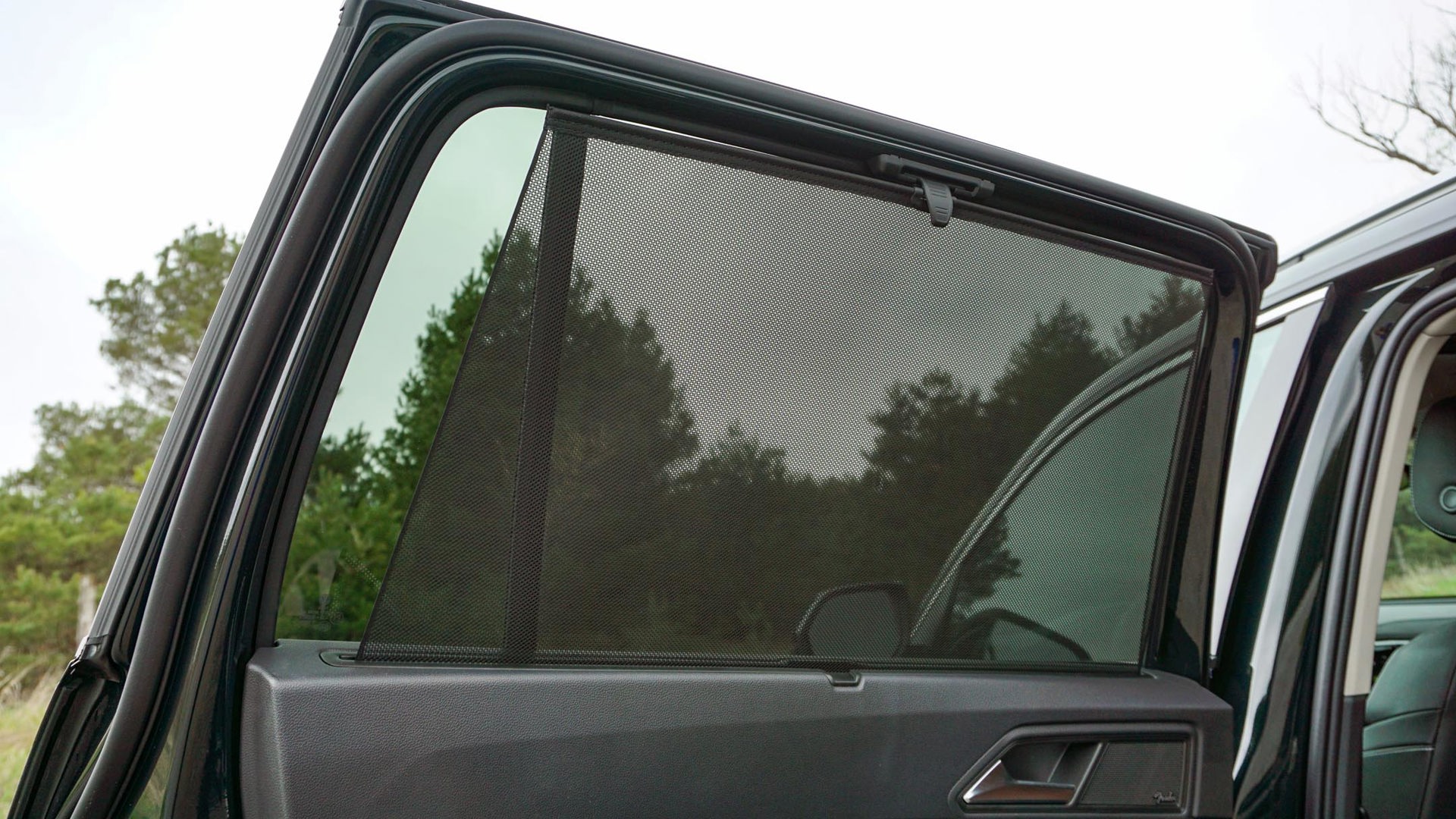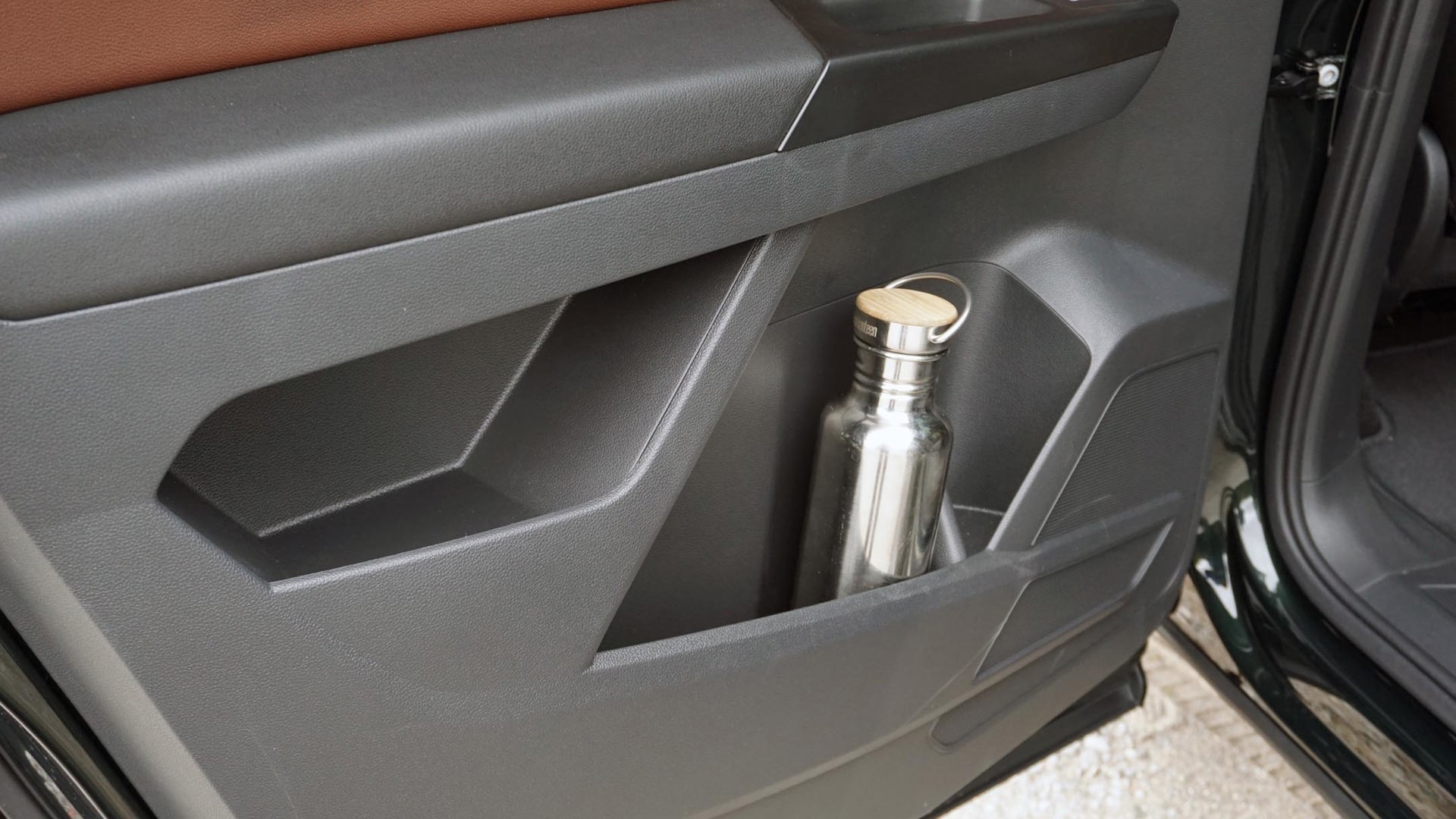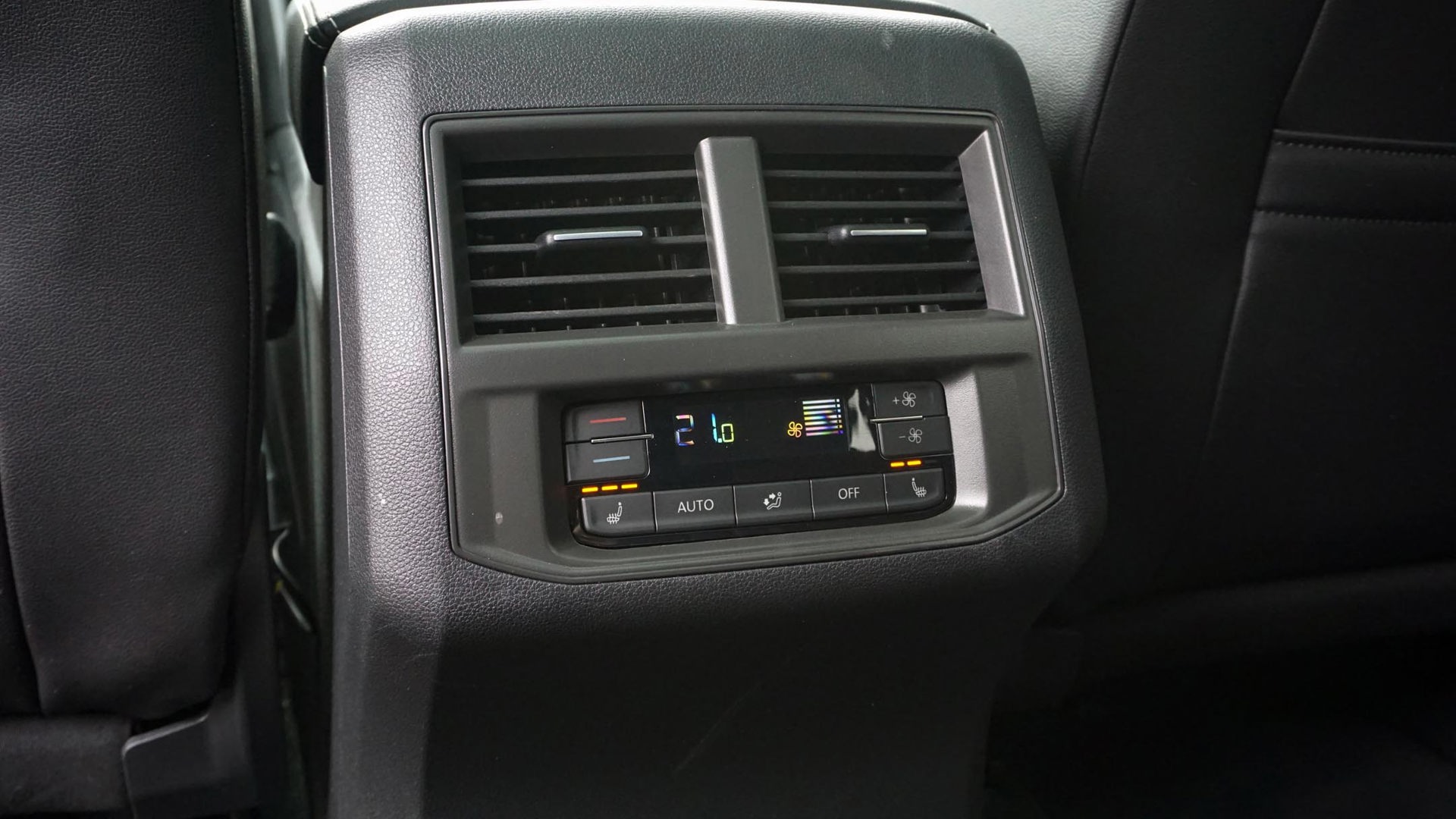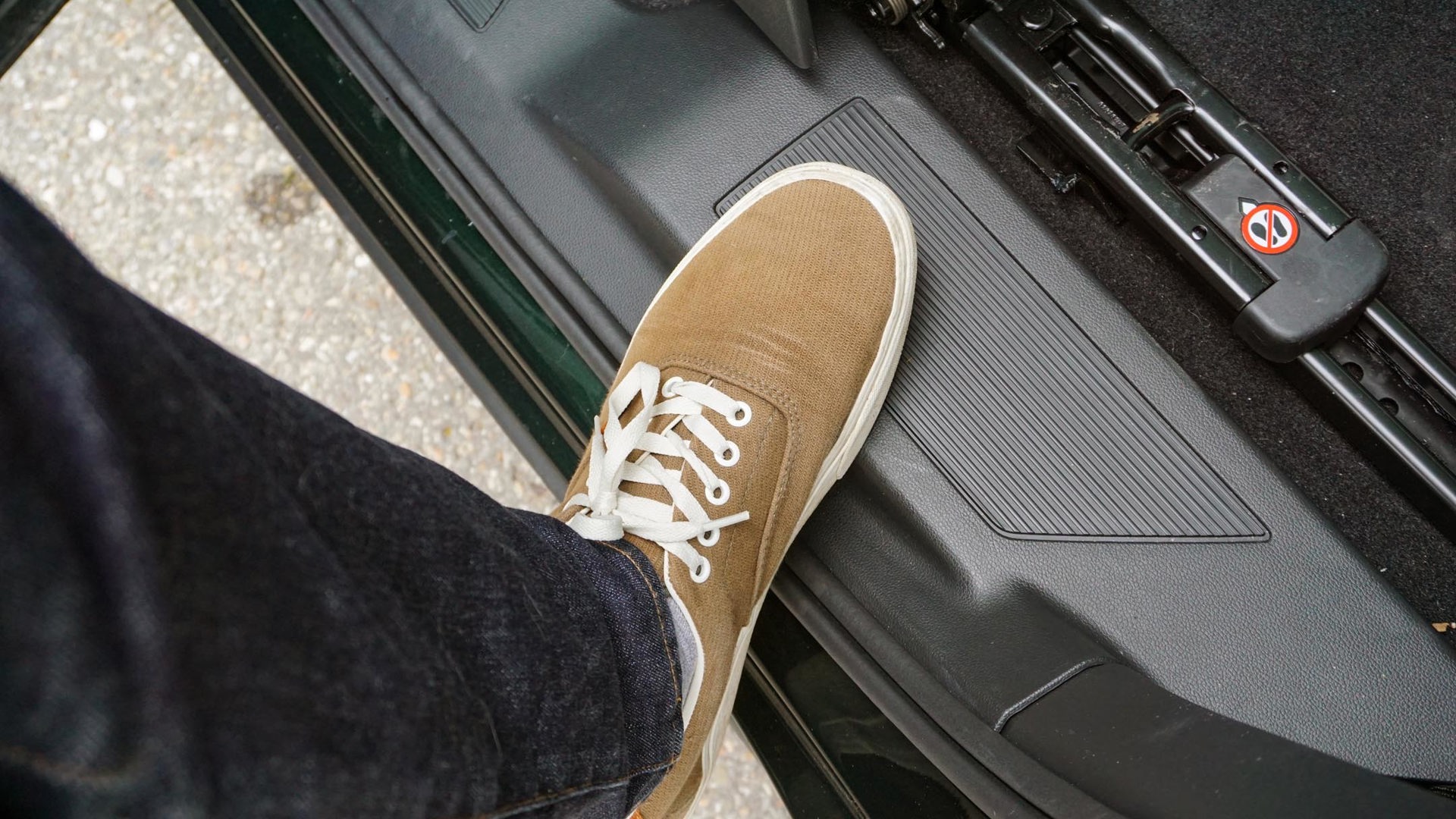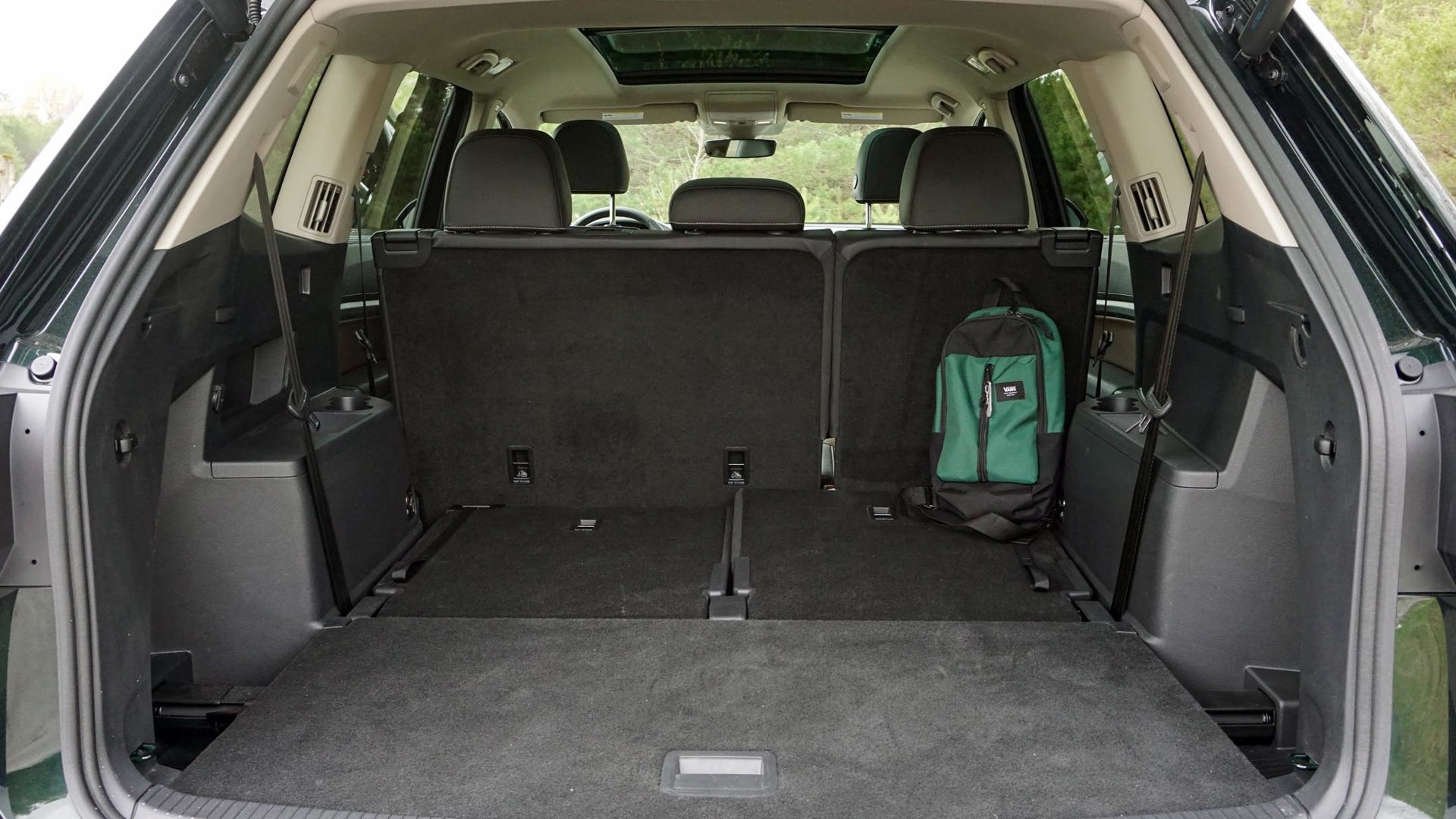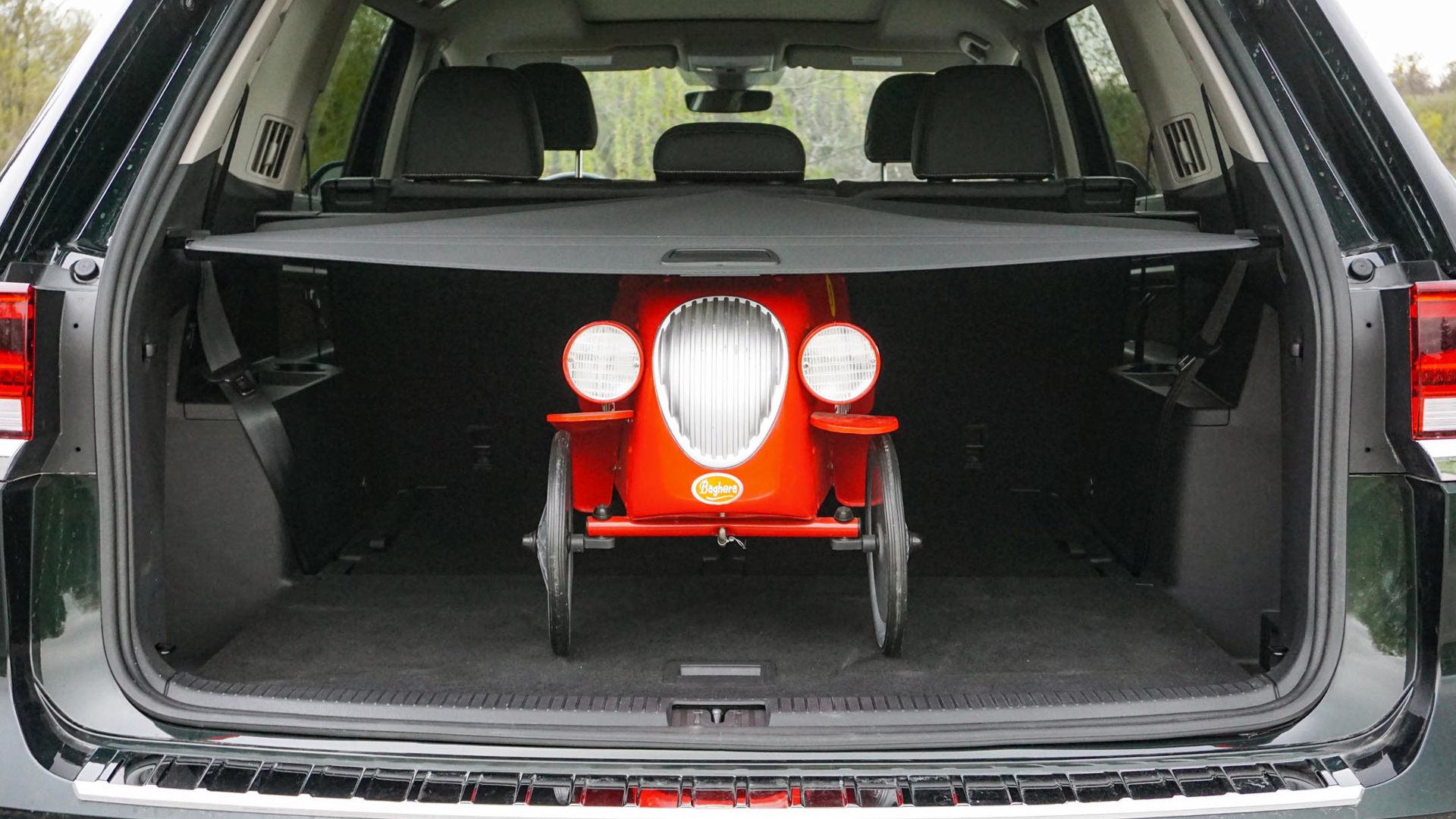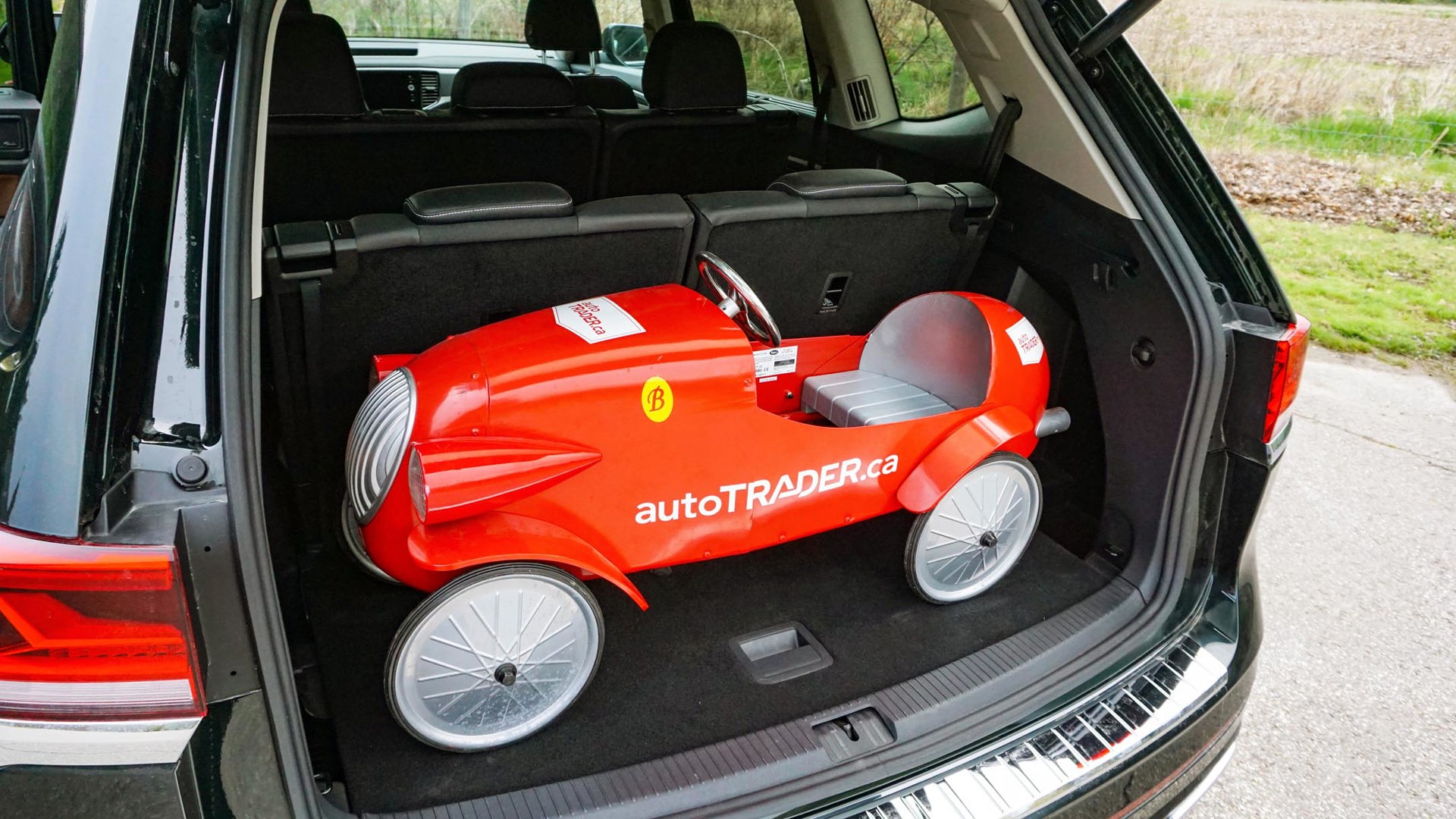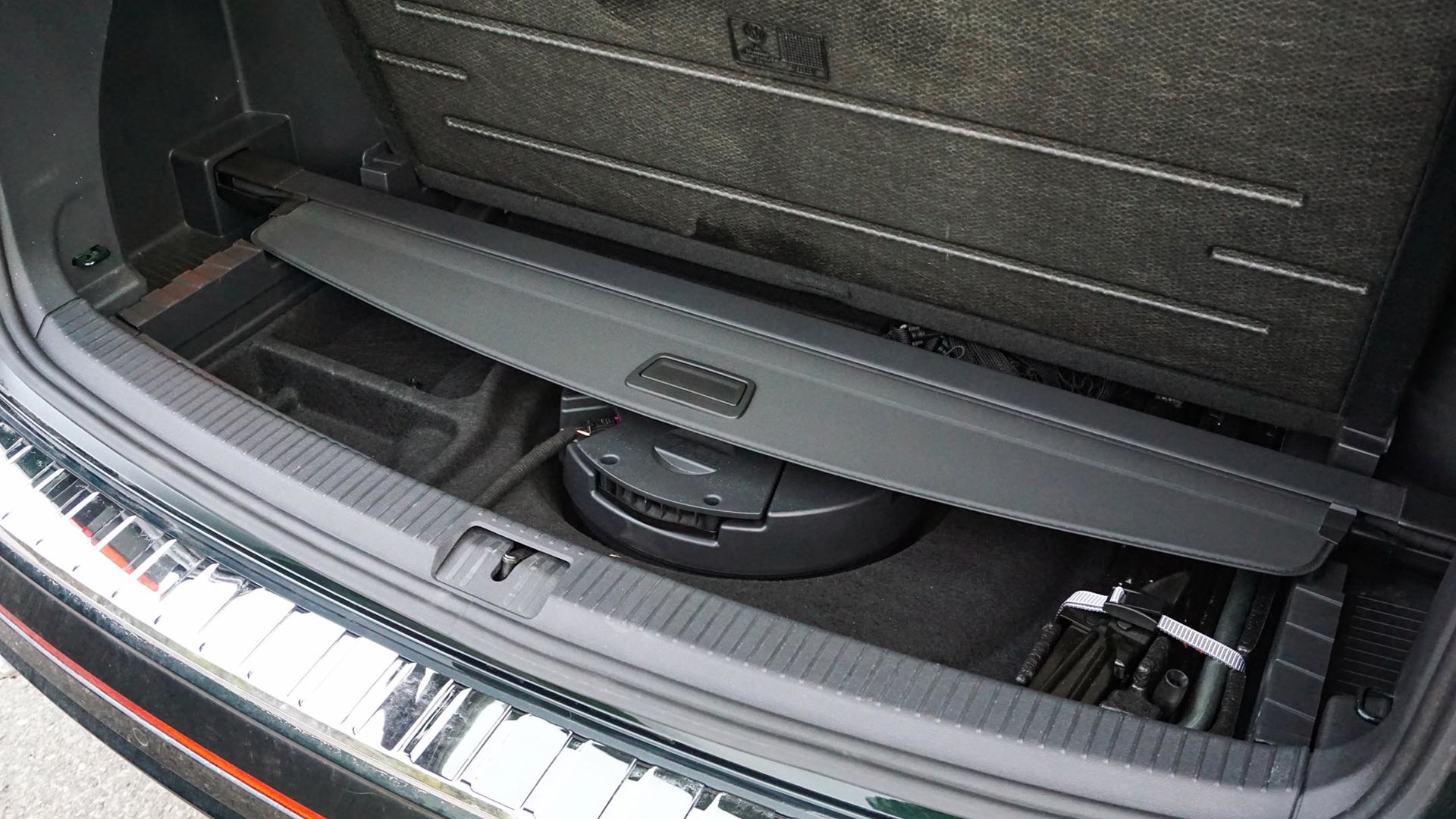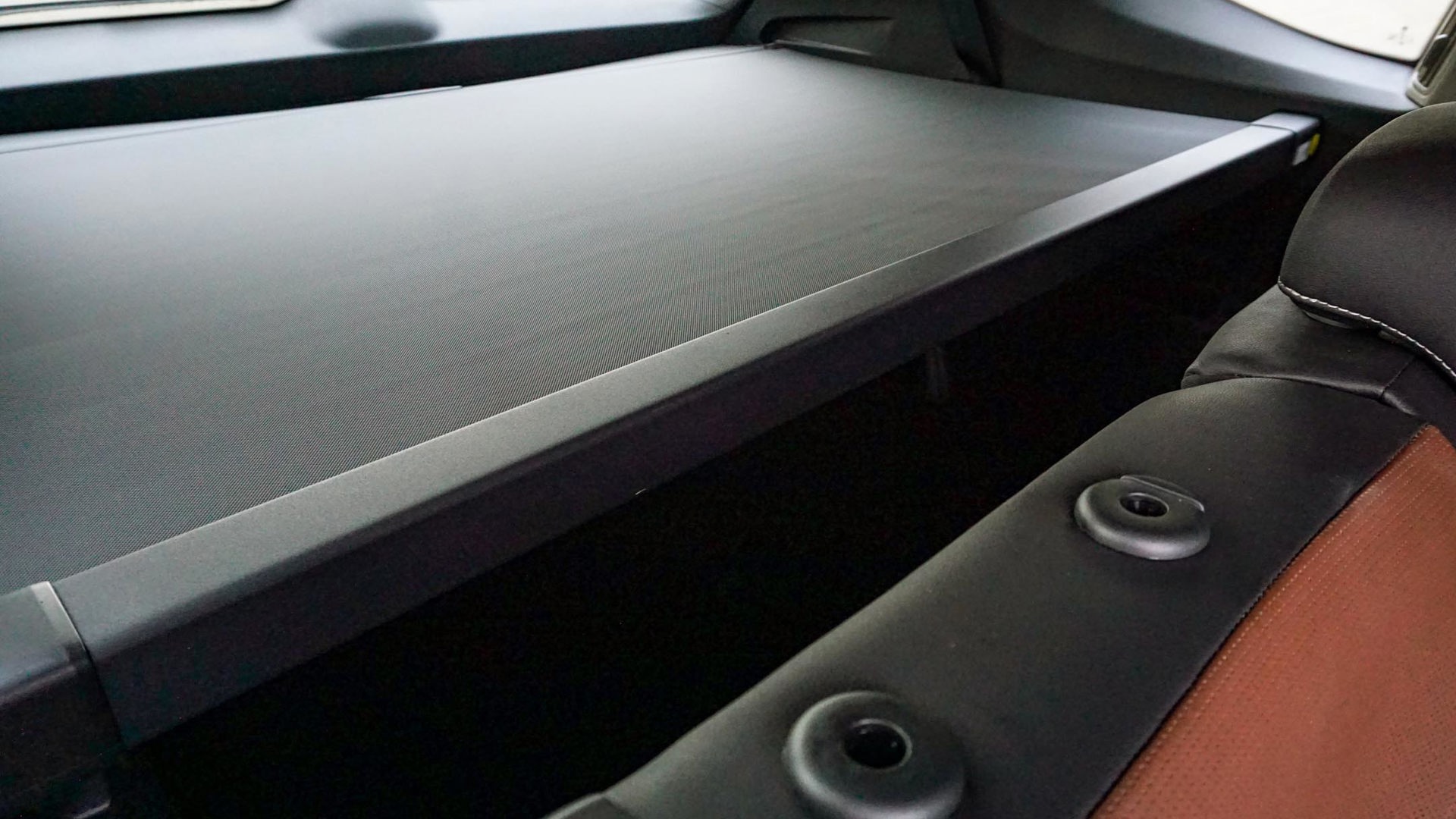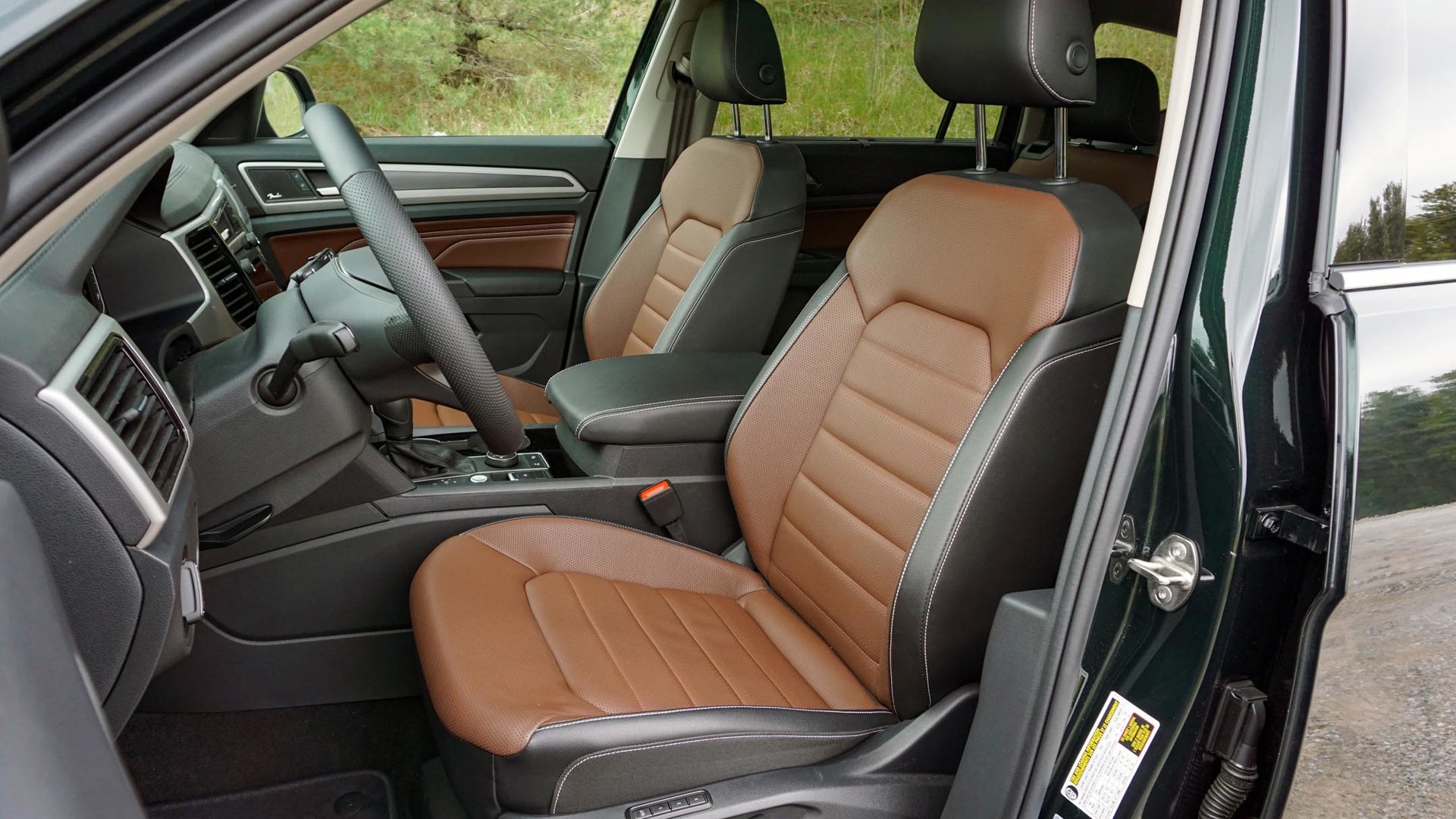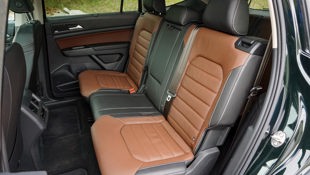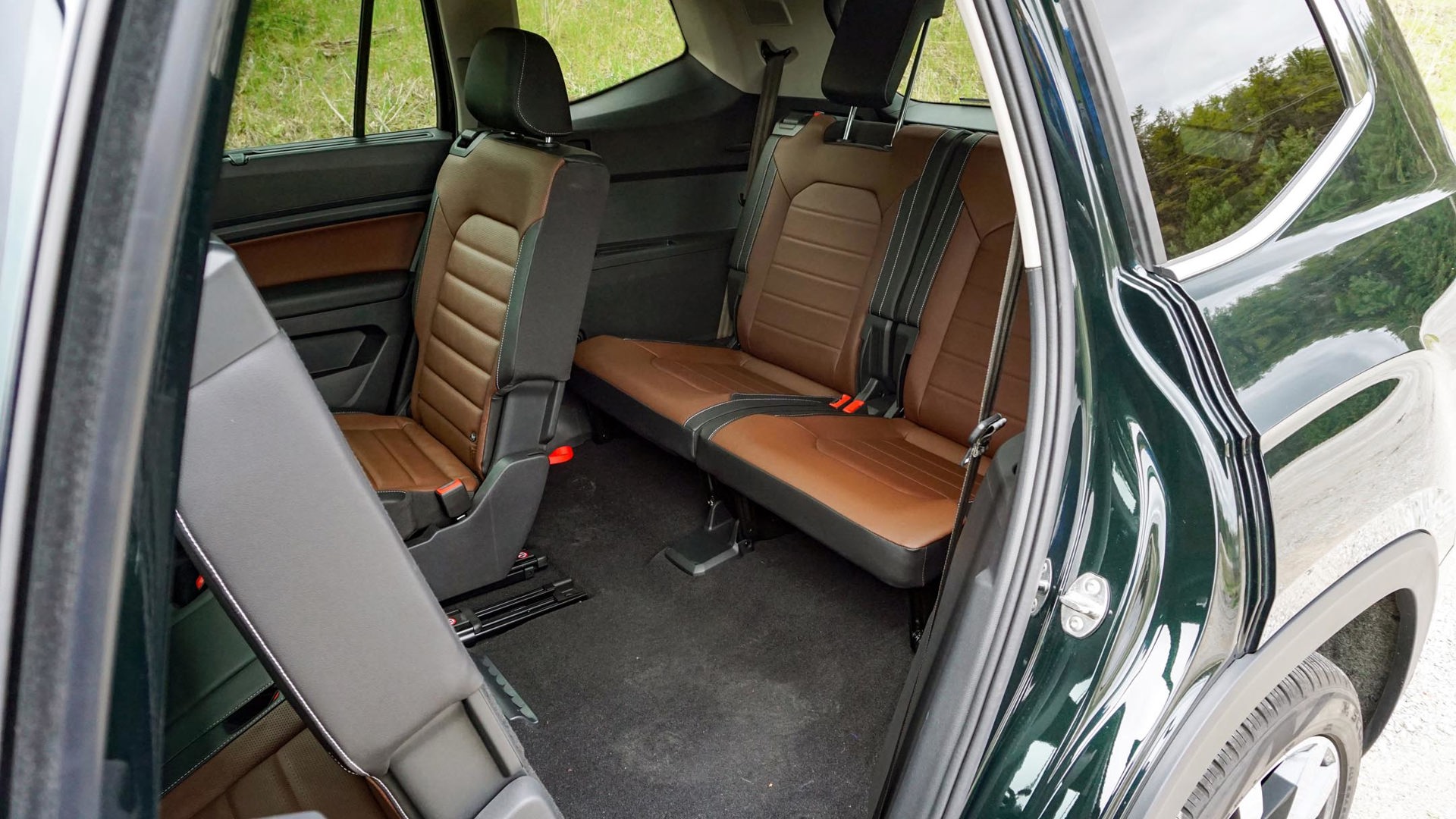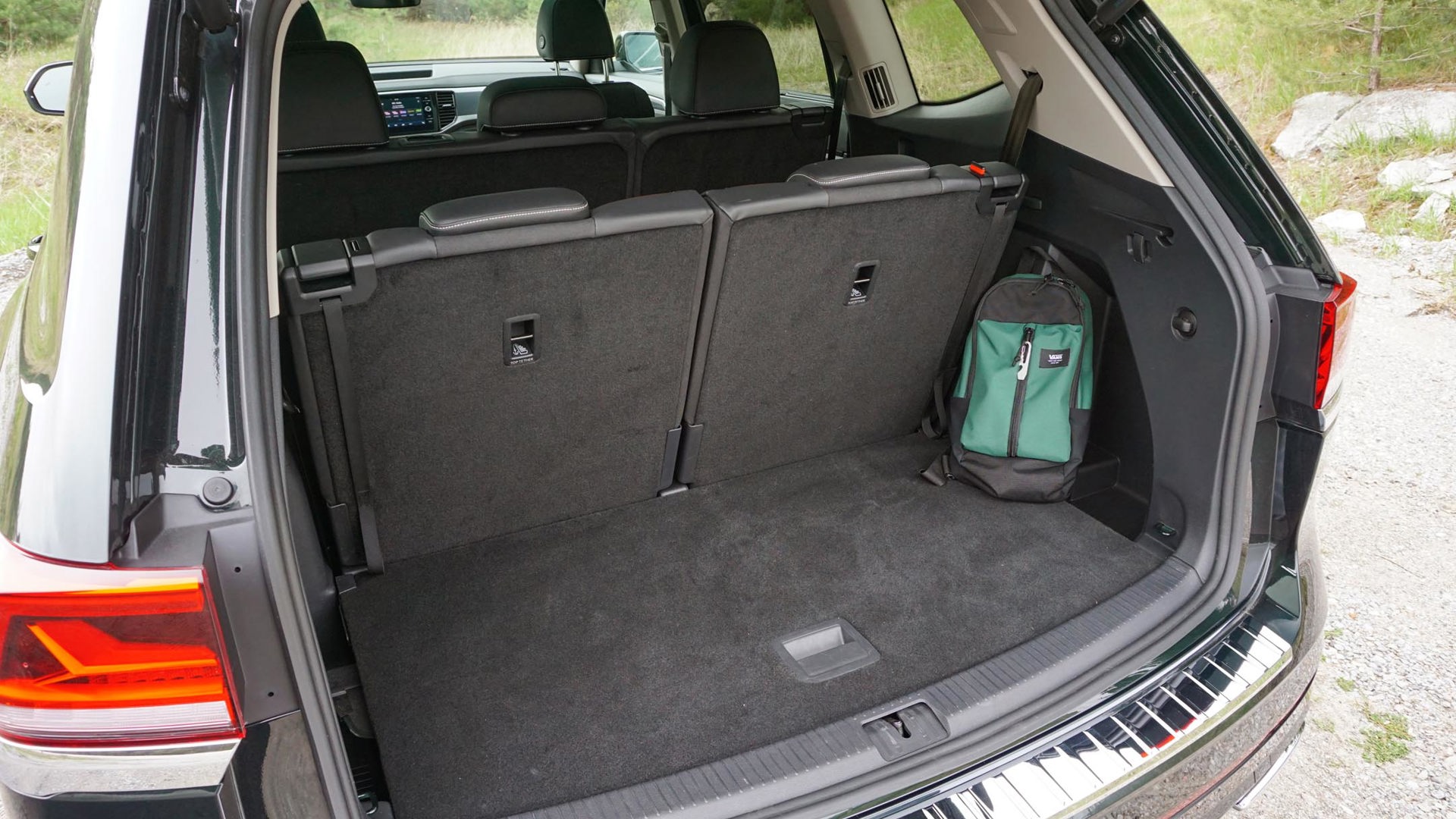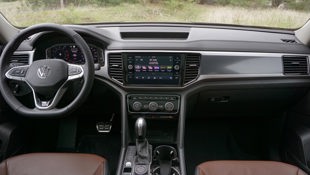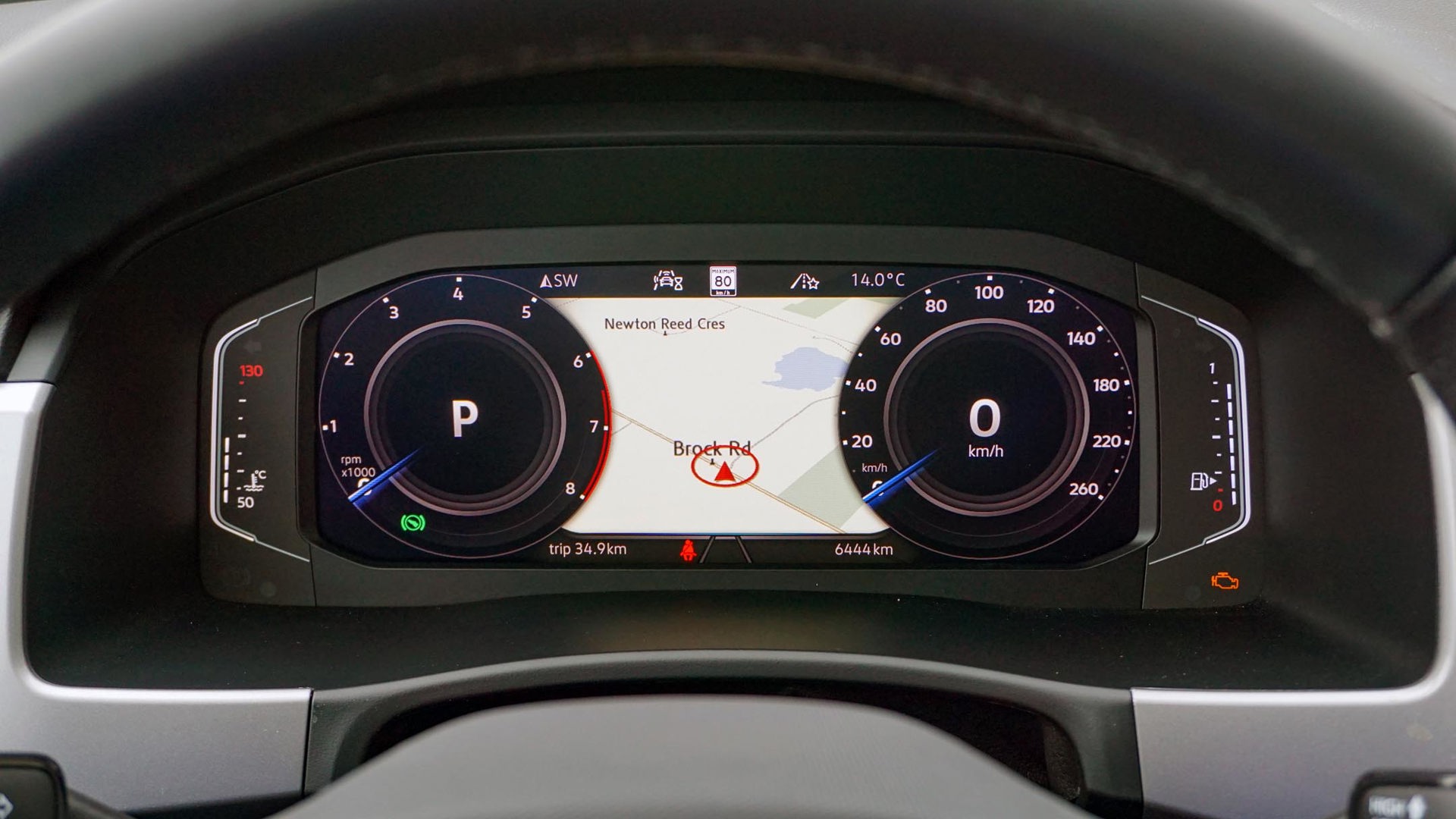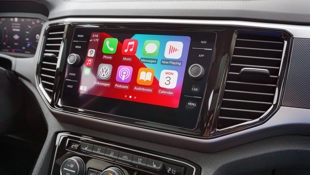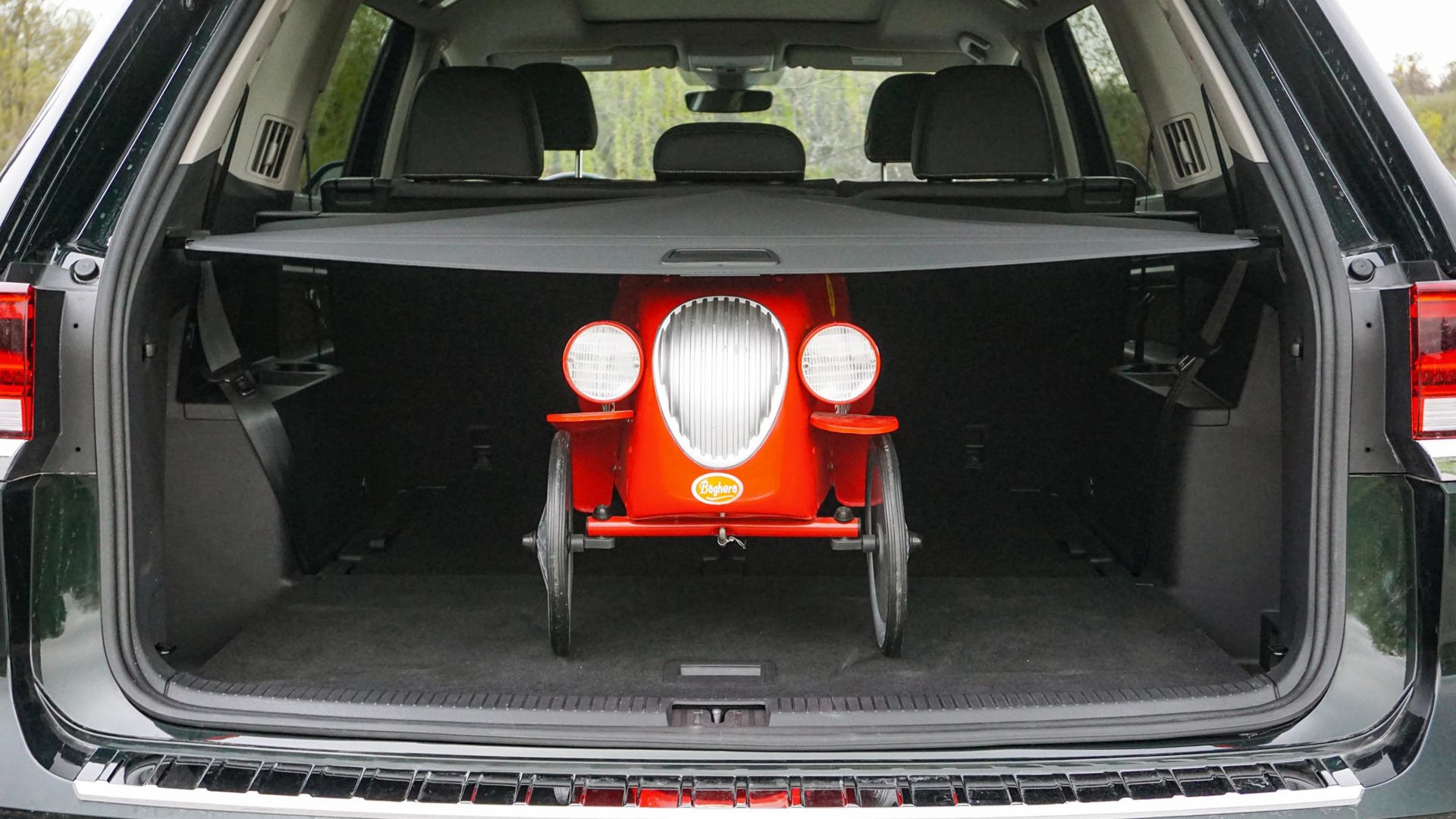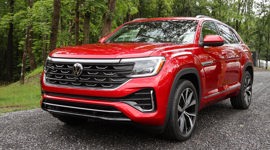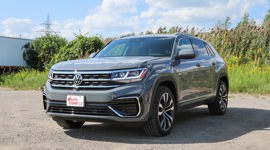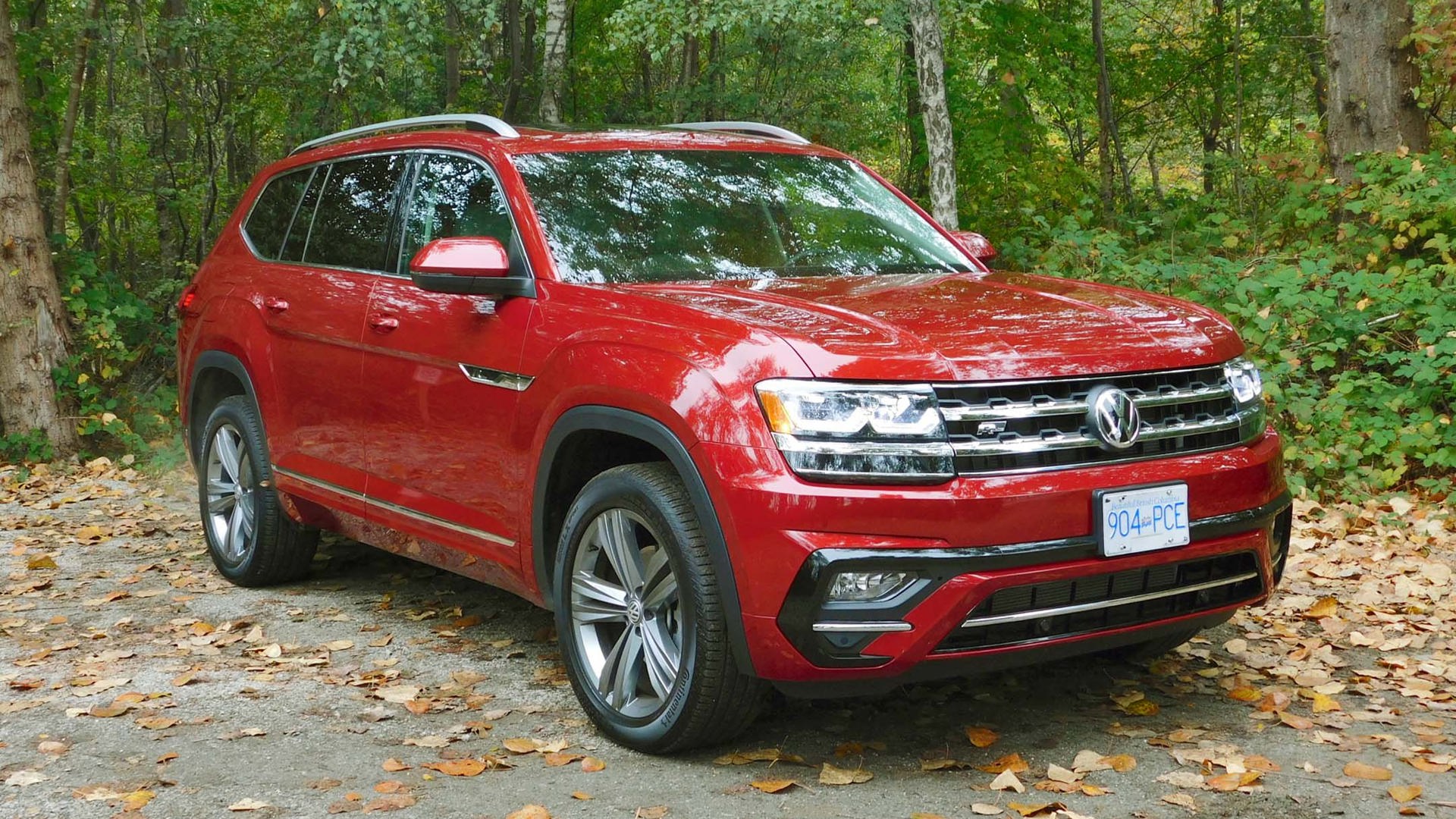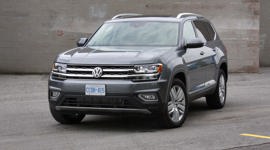 AutoTrader SCORE
AutoTrader SCORE
-
STYLING6/10
-
Safety6/10
-
PRACTICALITY10/10
-
USER-FRIENDLINESS9/10
-
FEATURES8/10
-
POWER8/10
-
COMFORT8/10
-
DRIVING FEEL6/10
-
FUEL ECONOMY6/10
-
VALUE7/10
I’ve been known to concoct a crazy theory or two about this ever-changing industry, but my latest might just take the cake.
Maybe it’s a little abstract, but bear with me here. When I look at the evolution of the humble family hauler, I see similarities to the ways in which home entertainment has changed over the years.
It started with the era of wagons, which was like gathering around the living room radio – sort of simplistic and one-dimensional, but it brought families together while laying the foundation of what was to come. Then there was the minivan, which was a lot like the advent of broadcast television; it was more of the same but with a twist because it was, well, better.
That brings us to the three-row SUV. These behemoths are a bit like streaming services: there are about a billion of them to pick from these days, and they all offer roughly the same stuff for about the same money. And if you’re still with me, Volkswagen’s Atlas is a lot like Netflix – the biggest of the bunch, but not necessarily the best.
Sporting a few styling tweaks and some updated technology, the 2021 Volkswagen Atlas is a safe bet, sure, but it misses the mark in at least a few basic ways that make it less family-friendly than its outsized dimensions might suggest. Before signing up for that monthly payment, it’s important to consider all your family needs from a hauler like this in the first place.
Styling: 6/10
The 2021 Atlas earned a much-needed new mug, but that doesn’t mean it’s suddenly the Cinderella of the segment. Sure, it’s all subjective; but this Volkswagen really plays up the role of being the biggest SUV of its kind, with styling that accentuates its gargantuan dimensions. Translation? This is among the most sterile-looking rides around right now, with a brutalist influence that borders on boring.
That theme continues inside, particularly at any point below this top Execline trim, which is the only one available with anything other than an all-black motif. That makes for a bleak space given all the flat surfaces throughout the cabin and the lack of any contouring or shapeliness. Adding just a hint of character to this loaded tester is the leather upholstery on the door panels and seats that’s finished in a baseball-glove brown, though black is available, as is an off-white hue for those who might be so brave.
Comfort: 8/10
Those seats aren’t especially well contoured either, though the ones up front are wide and nicely bolstered for all kinds of cruising comfort. Both are eight-way power adjustable in the top two trims and feature three-stage heat and ventilation, while the second-row seats are heated regardless of configuration (a bench is standard, while it can be swapped for captain’s chairs for $625 in the two priciest trims). Should a cheaper trim be in play, fear not: heated front seats are standard, though a heated steering wheel and tri-zone automatic climate control aren’t; they come in all but the base version.
With all that good stuff at my disposal during one of those weeks of springtime testing where the temperature was prone to wild swings to go with grey skies and plenty of rain, the Atlas was an adaptably cozy companion during testing. However, the amount of road noise that found its way inside when driven on porous pavement was disappointing, with a dull but incessant whirring on all but the smoothest of surfaces.
The suspension that underpins the Atlas proved to be a bright spot, with a soft and supple quality that could almost be mistaken for the adaptive variety. Ride quality isn’t quite perfect, though, with the damping becoming somewhat overworked through deep divots or on severely broken pavement, combining with this tester’s plus-sized 21-inch wheels and low-profile tires to come off as less than pleasant on occasion.
Driving Feel: 6/10
The pliable suspension that does its best to smooth this hefty hauler’s ride provides no favours in the handling department, the Atlas leaning high and outside when cornering. To take it a step further, the body roll here is among the most significant I’ve experienced in recent memory and truly accentuates this SUV’s size.
Compounding matters is the impossible light and lifeless steering – qualities that aren’t exactly ideal for such a sizable sport utility. There’s simply no sense of connection between what you’re holding in your hands and the direction the front wheels are pointed, which is somewhat unsettling given the Atlas tips the scales at more than 2,000 kg (4,409 lb). It’s not that this is an unpredictable SUV to drive, but it lacks any kind of indication about what’s going on that I’d like from something so large.
Practicality: 10/10
The trade-off here is that the Atlas isn’t just bigger than any other three-row like it, but it makes excellent use of its dimensions, too. If you have a genuine need for an outsized family hauler, well, I hate to break it to you but a minivan is still your best bet. But if you just can’t bring yourself to drive such a pantheon of practicality, and a body-on-frame beast like the Chevrolet Tahoe is out of the question, too, then this Volkswagen just might do the trick.
Not all entries in this segment are created equal and the Atlas is proof, this swole sport utility out-duelling its next two closest rivals, the Honda Pilot and Ford Explorer, with ease. Rarely have I had such a hassle-free experience fitting in all three rows of any vehicle, and the Atlas earns top marks for its ability to make every seat inside genuinely usable for my 6-foot-3 frame. (Fine, I wouldn’t want to be stuck in the centre of the second row, but it’s still there if you need it.)
Likewise, with both back rows of seats upright there’s a proper cargo hold, the 583 L more than either of those rivals in addition to anything else in the class. No, it’s not minivan territory, but the space is generous enough to fit the AutoTrader.ca cargo-testing pedal car with the third row upright. Once it’s folded the area expands to 1,571 L, while dropping the second row nearly doubles it to 2,741 L.
User Friendliness: 9/10
Each of those measures is enough to be noticeably more substantial than what’s offered by the Explorer, this big VW’s closest competitor in terms of size. The Atlas also possesses a key feature that’s conspicuously absent from that popular Ford: a retractable cargo cover. Included in all but the base Atlas, there’s even a handy spot to stash it under the trunk floor when it’s not in use – though it can only be installed with the third row folded, leaving any cargo in the back exposed to prying eyes should those rearmost seats be in use. There’s also a large gap between the seatbacks and the cargo cover with it installed, meaning anything back there can still be seen.
In another odd twist, while a power tailgate is equipped on all but the base trim, and it can be opened via buttons inside, outside, or on the key fob, it can only be closed using the button on the tailgate itself. That might not seem like such an inconvenience until the time comes to close it with both hands full of grocery bags, or when dropping the kids off at hockey practice. There’s also no way to fold the second-row seats from the cargo area like there is in the Explorer, meaning to do so requires walking to both rear doors and using the levers on the sides of the seats.
Those handles are convenient when it’s time to access the third row, with the ability to tumble either side of the 60/40 bench (or optional captain’s chairs) forward without removing any baby seats that may be buckled in. And when dropped back into place, the seats return to the exact position they were in before, preventing any fights over who has more legroom. The doors are also generously sized to make access as easy as possible, while the rear sills feature large steps for climbing aboard or reaching any roof-mounted cargo (fixed rails are standard fare).
Up front, the simplicity of the cabin really shines, with an intuitive layout of the controls and a commanding view of the world outside. The Atlas is big, yes; but it’s easy enough to keep an eye on what’s happening around you. The switchgear on the steering wheel, centre stack, and console all makes sense at a glance, with no need to crack the owner’s manual to understand any of the information presented, while buttons and knobs remain in place for climate control.
Features: 8/10
Mounted in the middle of the dash is an eight-inch touchscreen (a 6.5-inch unit comes in the base trim) that will perform differently depending on build date. Early versions of the 2021 Atlas feature a traditional resistive display and run the automaker’s second-gen software, while those built later run an improved system through a capacitive touchscreen that behaves more like a smartphone or tablet. Unfortunately, the tester provided by Volkswagen Canada featured the former, which also does without wireless Apple CarPlay and Android Auto connections.
Both of those connections are wired here, however, and come standard regardless of head unit size (for what it’s worth, the base version of the 2021.5 Atlas doesn’t get wireless connections either, but the rest of the lineup does). And just about everything else you might expect from this segment is where you’d expect it to be, so stuff like satellite radio and a power tailgate enter the mix at the second trim, while equipment gets progressively better from there as it ranges up to include a full digital instrument cluster that can display navigation information in the gauge pod – handy during road trips.
Sadly, when it comes to family-friendly features the Atlas is short more than a few. There’s no rear-seat entertainment system offered, for example, nor is there the kind of speaker system that amplifies the driver’s voice to the far reaches of the cabin – something that could be handy given the size of this sport utility (and one that’s offered by rivals like the Pilot). More basically, though, there’s not even the kind of ceiling-mounted convex mirror that so many competitors provide so parents can keep an eye on little ones in the back.
Value: 7/10
To get all the good stuff – digital gauge cluster, 12-speaker stereo, surround-view monitor, self-parking system – means shelling out $57,480 before tax for the Atlas Execline. To get it done up like my tester takes another $1,690 for the R-Line package, which adds a few styling cues inside and out, including these massive 21-inch wheels, pushing the total to $59,170. Over at Hyundai, the three-row Palisade done up in its fancy new Ultimate Calligraphy trim is a $56,624 proposition, while the top-of-the-line Ford Explorer Platinum rings in at an eye-watering $67,549. But both of those look and feel slightly further upmarket than this Volkswagen.
The Atlas Highline, meanwhile, is priced at $50,880 or $53,080, depending on engine (more on that shortly), and comes with lots to like, including leather upholstery, heated and ventilated front seats, and heated rear seats, as well as 20-inch alloy wheels and a panoramic sunroof. If you can live without all that, the Comfortline gets equipment like adaptive cruise control, tri-zone automatic climate control, a heated steering wheel, satellite radio, and a power tailgate for between $46,580 and $48,780 depending on what’s under the hood, while the cheapest Trendline trim is $41,980 before tax.
Safety: 6/10
While every version of the Atlas features forward collision warning with pedestrian detection and blind-spot monitoring, as well as rain-sensing wipers and LED exterior lighting all around, it’s seriously lagging the competition in some key areas of advanced safety. For starters, reverse automatic braking isn’t offered, nor is a head-up display, while automatic high-beam headlights only come equipped on the top trim. Far more glaring, though, is that the same applies to lane-keep assist. That puts the Atlas at a significant disadvantage compared to rivals like the Palisade, Pilot, and Toyota Highlander, all of which include every one of those safety features (yes, lane-keeping, too) with every trim.
Power: 8/10
Like those competitors, the Volkswagen Atlas is available with V6 power under the hood, though unlike that trio it’s not the only engine offered (I’m also not counting the Highlander’s available hybrid powertrain in that tally). Opt for any trim but the priciest one and a turbocharged 2.0L comes standard, and it generates 235 hp and 258 lb-ft of torque – similar to the likes of the Subaru Ascent that also relies on a four-cylinder for motivation.
If you plan to take advantage of the Atlas’s peak pulling capacity of 2,268 kg (5,000 lb) – come to think of it, while class-competitive, that figure doesn’t exactly live up to this SUV’s namesake mythological hero – you’ll want to shell out for the 3.6L V6 that’s standard in the top trim and a $2,200 upgrade in the Comfortline and Highline. The 276 hp and 266 lb-ft of torque it makes don’t necessarily stand out, and it’s a little on the peaky side; but there’s plenty of pull from fairly low engine speeds, with all that torque kicking in at just 3,500 rpm.
The eight-speed automatic transmission is equally adept at moving this brute, though it isn’t uncommon for the occasional hiccup to materialize – particularly at city speeds, where it can shudder a bit as it decides against an upshift here and there. The idle stop-start system is equally as jarring at times, the Atlas lurching forward should the engine kick back on based on brake pressure. Graciously, all it takes is the press of a button to shut the system off.
Fuel Economy: 6/10
While all-wheel drive is standard equipment, the combined 12.9 L/100 km this V6 version of the Atlas is rated to burn is fairly atrocious. For the sake of comparison, the gas-powered Highlander is rated at 10.3 L/100 km (the hybrid burns just 6.7), while the Palisade and Pilot are rated at 11.1 and 11.0, respectively. Given the all-wheel drive system’s propensity to cut torque to the rear wheels when it isn’t needed, the 10.2 L/100 km I averaged during a highway-heavy initial evaluation drive spanning 270 km was impressive. However, it didn’t take long for that figure to climb closer to the official average rating, with a week-long test finishing at 12.6 L/100 km over nearly 600 km.
The Verdict
In a competitive market where turning heads matters, the 2021 Volkswagen Atlas stands out for its size, sure; but that’s about where distinctions end. Make no mistake, as far as the basics go, this behemoth has them covered. It’s comfortable enough, boasts a decent assortment of features, and even has a few touches that aren’t exactly commonplace in the segment like the digital gauge cluster. But it doesn’t move the needle in any meaningful way.
It’s not especially impressive to drive either – not that an SUV like this needs to handle like a sports car, but some semblance of a connection to the road below and a little less body roll would go a long way towards improving matters. But it’s the packaging that prices lane-keep assist out of reach of anyone who isn’t willing to shell out for the top trim that’s most disappointing, while the absence of a head-up display is yet another downer. And then there’s the odd stuff like the power tailgate that can’t be closed using the key fob, or the lack of a convex mirror, voice amplification system, or rear entertainment system that cut into the family-friendliness of this big Volkswagen.
The Atlas can easily fill a sizable void in your driveway, not to mention your monthly budget. But then so too can at least a few other SUVs like it. And while they might lack the outright size of this Volkswagen, they bring benefits of their own that are worth weighing carefully before you make up your mind.
| Engine Displacement | 3.6L |
|---|---|
| Engine Cylinders | V6 |
| Peak Horsepower | 276 hp @ 6,200 rpm |
| Peak Torque | 266 lb-ft @ 3,500 rpm |
| Fuel Economy | 14.6 / 10.9 / 12.9 L/100 km cty/hwy/cmb |
| Cargo Space | 583 / 1,571 / 2,741 L behind 3rd/2nd/1st row |
| Model Tested | 2021 Volkswagen Atlas Execline |
| Base Price | $55,595 |
| A/C Tax | $100 |
| Destination Fee | $1,885 |
| Price as Tested | $59,270 |
|
Optional Equipment
$1,690 – R-Line Appearance Package, $1,690
|
|
